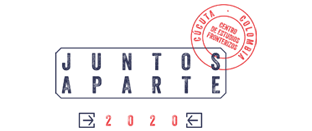
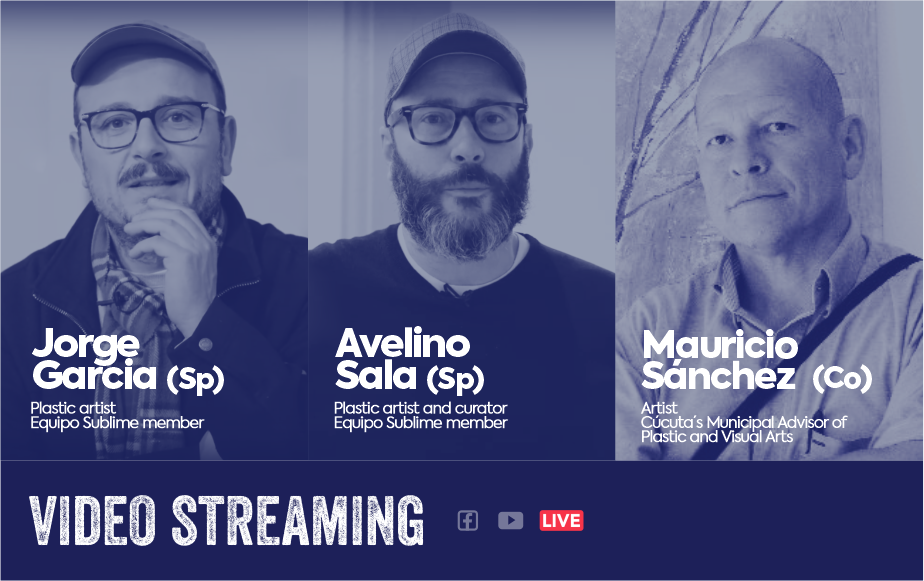
After five weeks revisiting the memories of JUNTOS APARTE 2017 and 2019 along with our allies, the Virtual Channel JUNTOS APARTE 2020 invites you to a conversation with Spanish artists Avelino Sala and Jorge García, members of Equipo Sublime, and artist Mauricio Sánchez, Cúcuta’s Municipal Advisor of Plastic and Visual Arts. We will share their experience in Cúcuta and their vision about the potential of art for critical social intervention and citizen construction on the border.
This conversation will be the opening of the last stage of the Virtual Channel, which will consolidate in a permanent digital archive all the experience of JUNTOS APARTE and its contribution, through contemporary art, critical thinking and citizen participation, to the construction of a new story, a living memory of social reconciliation and binational integration on the Colombian-Venezuelan border.

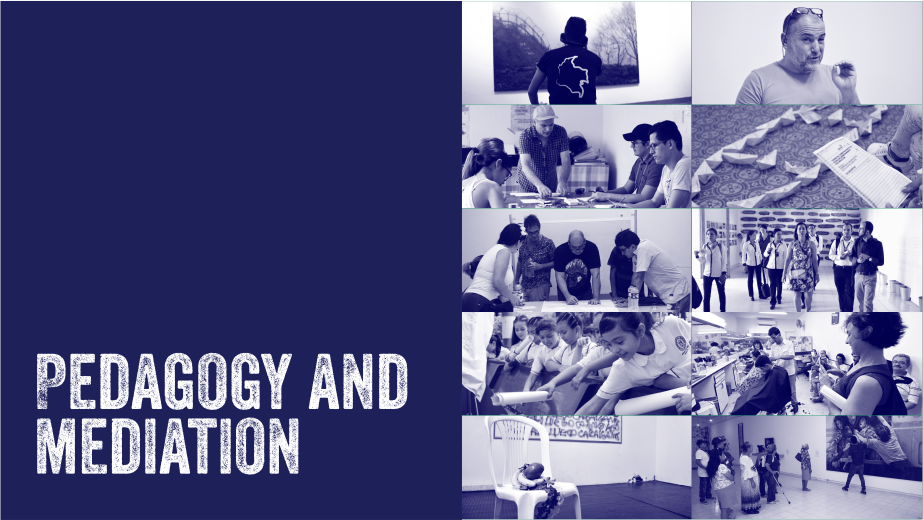
Learn about the lines of action of JUNTOS APARTE to train talent, generate models of intervention and establish spaces of relationship that triangulate sensitive experience, exchange of knowledge and collective learning, bringing the artistic fact to users and communities with flexible methodologies adapted to the context. Emotion and knowledge make contemporary art the best ally for border coexistence in the chapter on Pedagogy and mediation.
Seguimos JUNTOS APARTE!
We continue to be TOGETHER APART!
Canal Virtual JUNTOS APARTE 2020:
Memoria, frontera, integración.
Virtual Channel JUNTOS APARTE 2020:
Memory, Border, Integration
www.juntosaparte.com
Este proyecto fue posible gracias al generoso apoyo del pueblo de Estados Unidos a través de su Agencia para el Desarrollo Internacional (USAID). Los contenidos son responsabilidad de la Fundación EL PILAR y no necesariamente reflejan las opiniones de USAID o del gobierno de Estados Unidos.
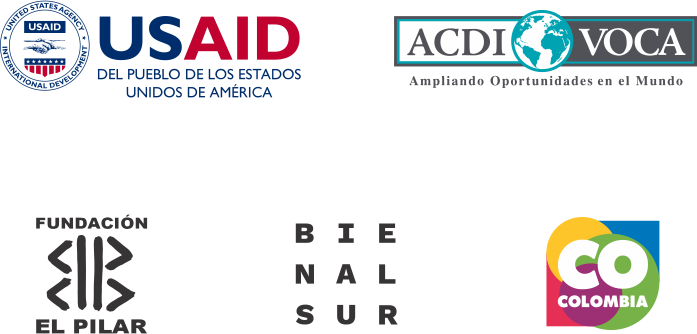
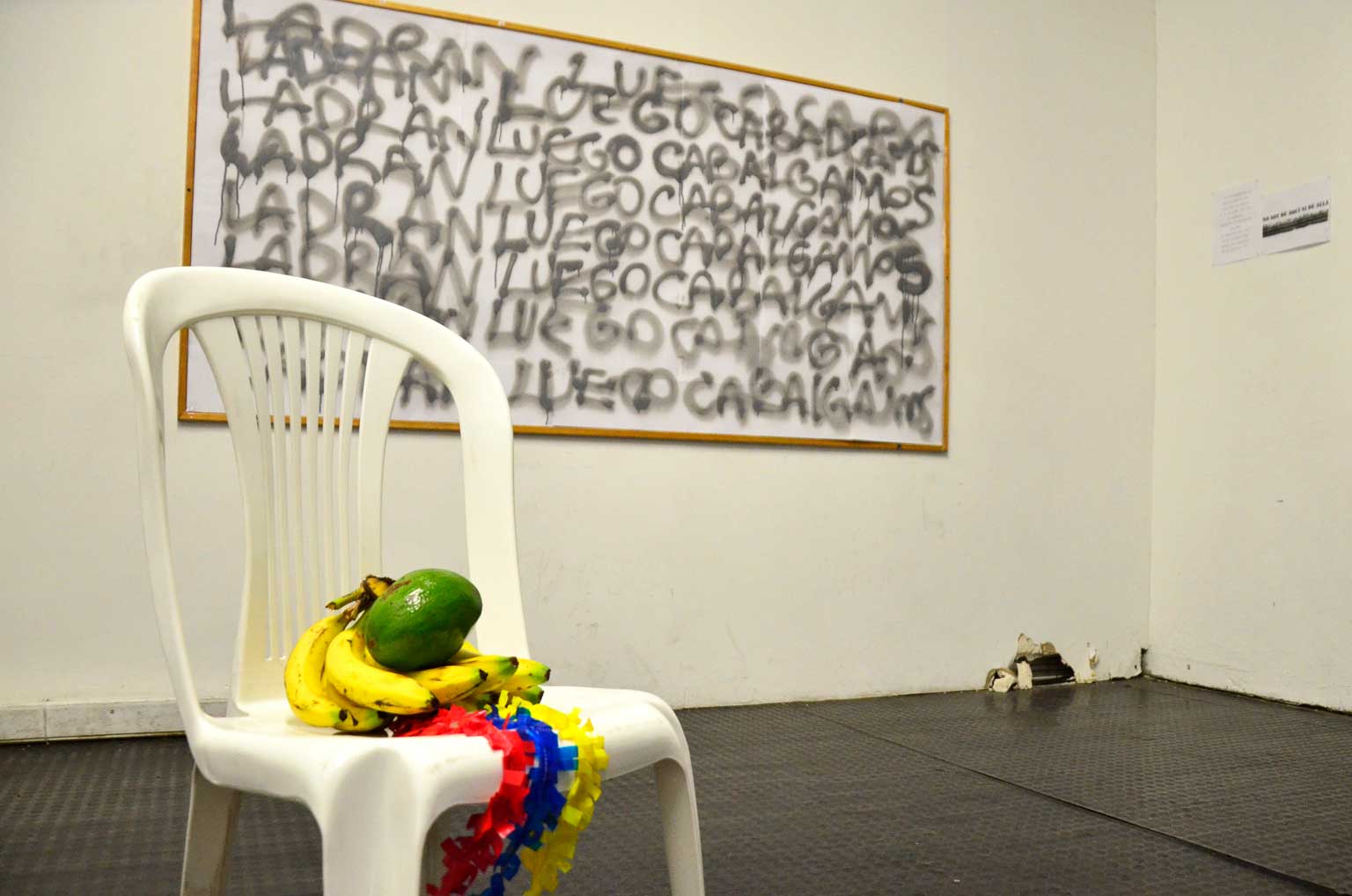
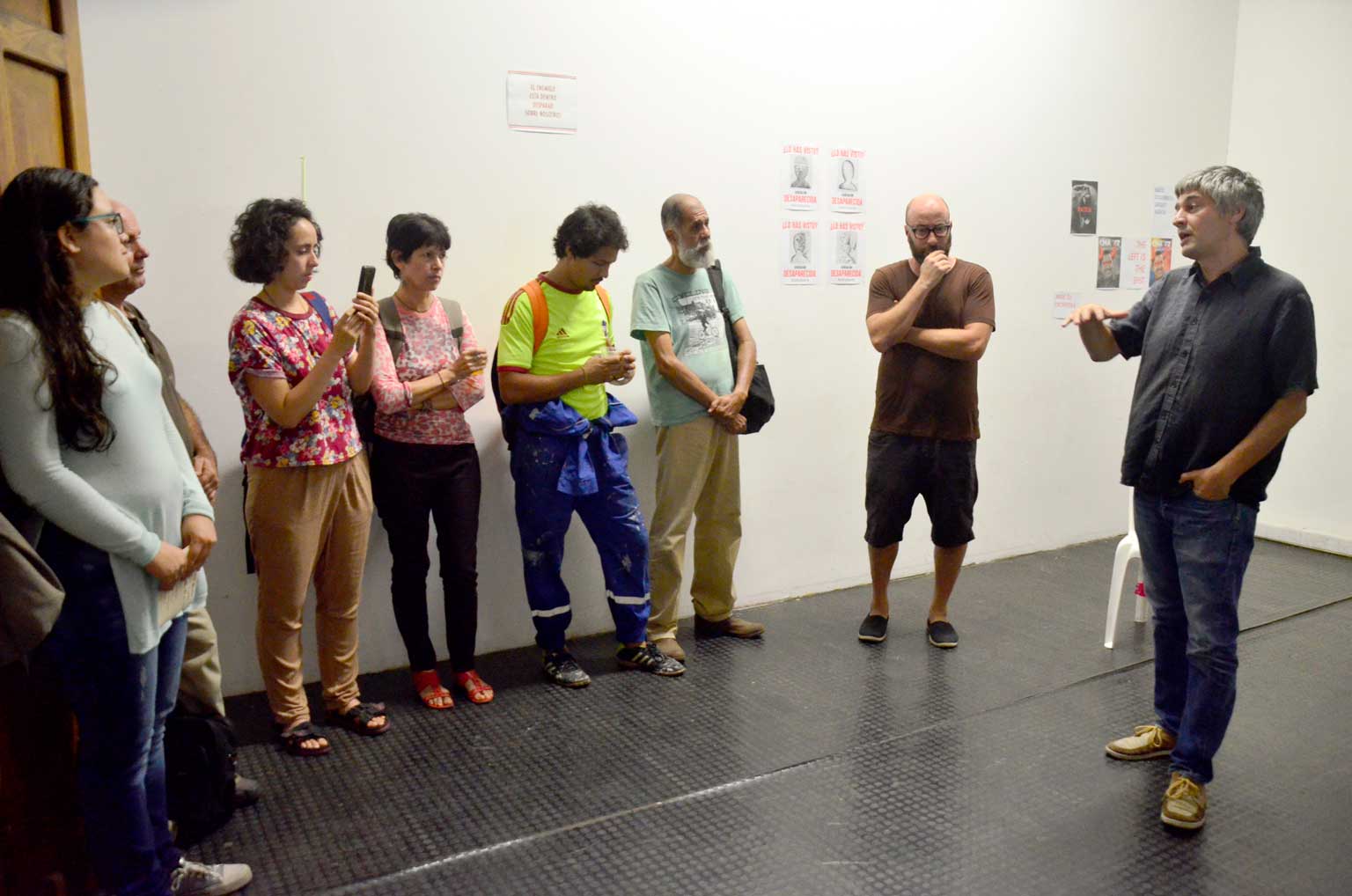
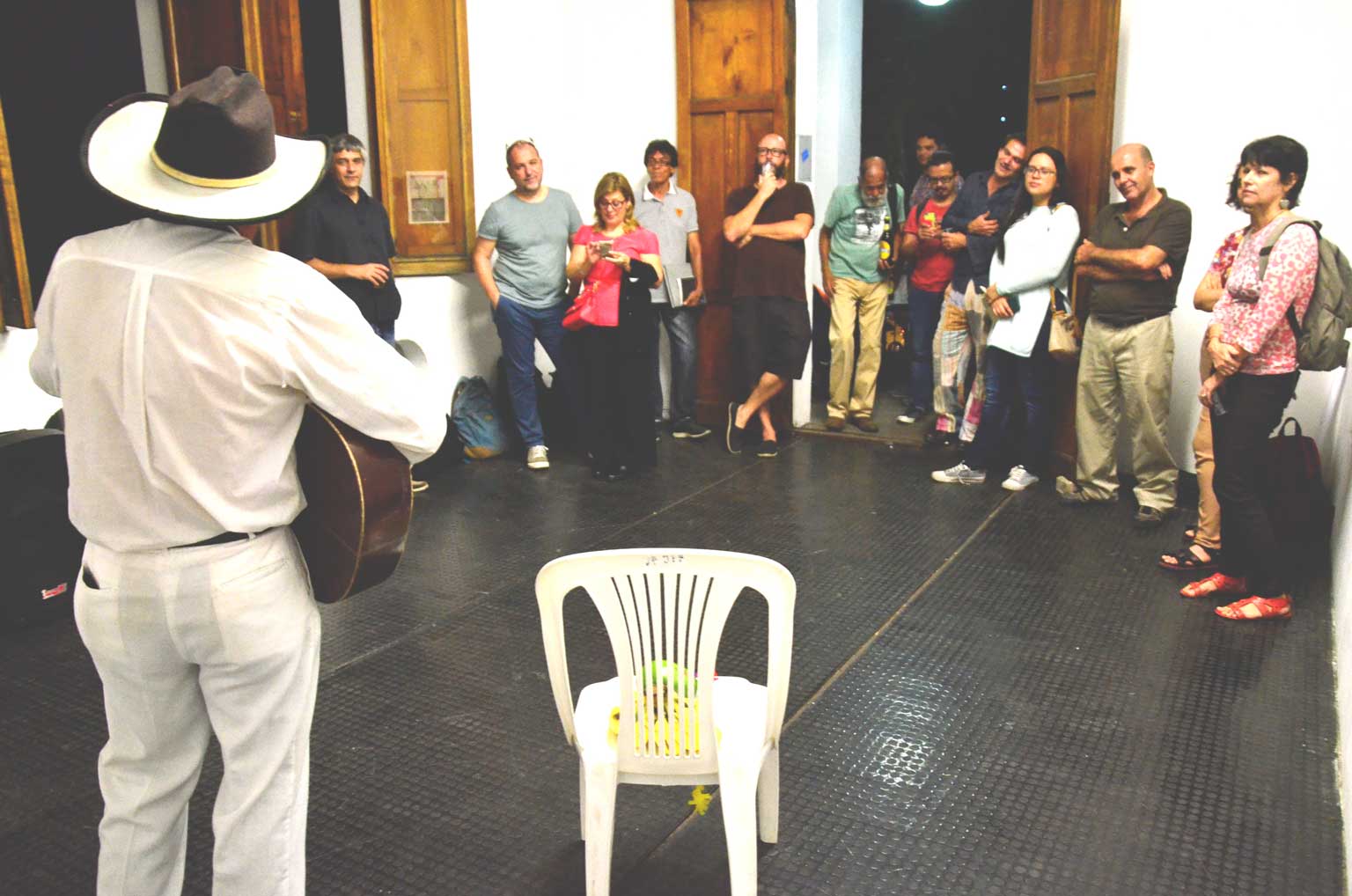
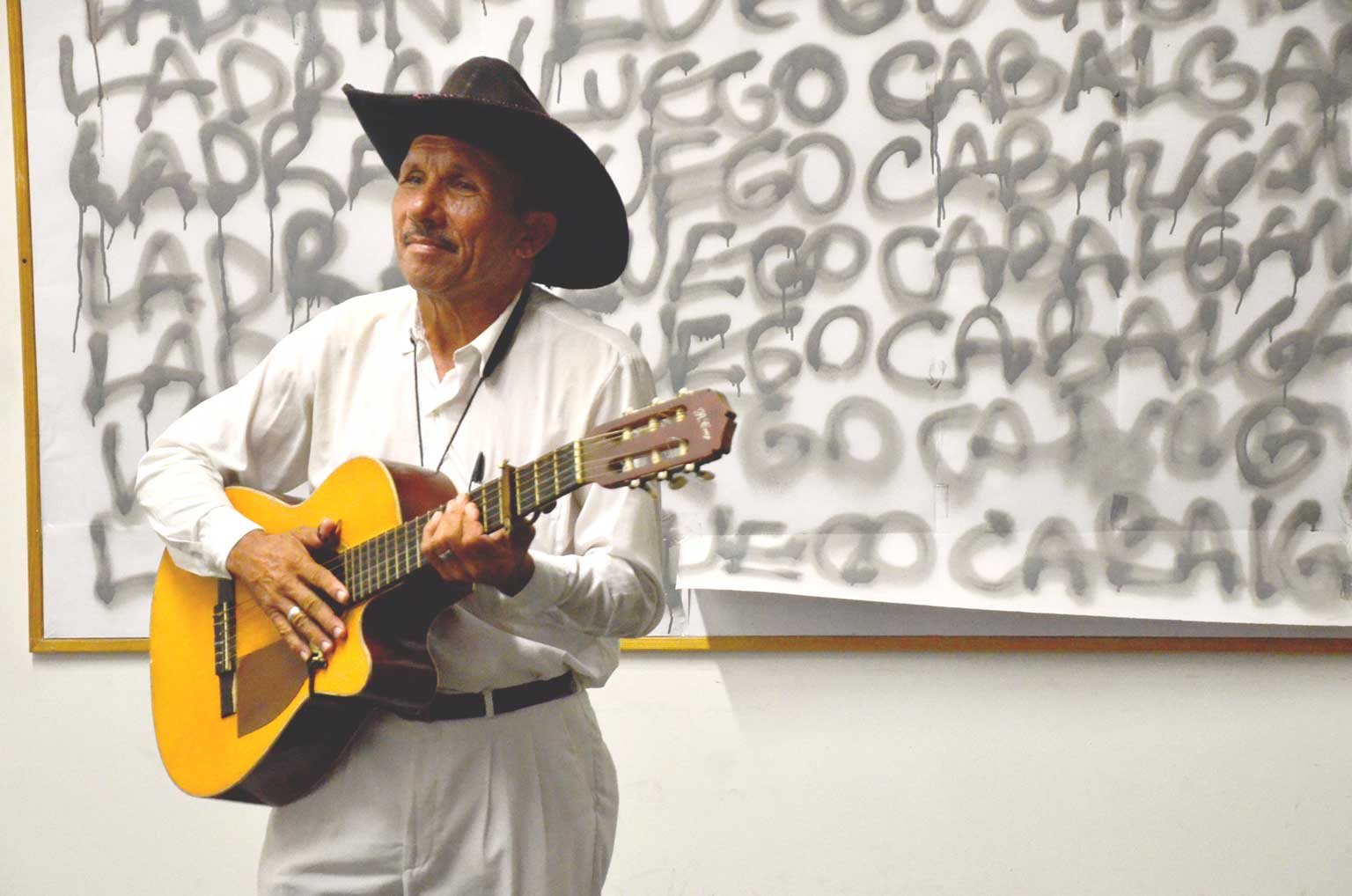
With the ephemeral exhibition Avenida Zero, Equipo Sublime gave a collective and performative closure to their workshop The enemy is inside – Shoot on us in JUNTOS APARTE 2017, making the movement through the city, the group discussion and the co-responsibility in the execution the road map towards collective authorship in the border.
Thanks to Institut Ramon Llull
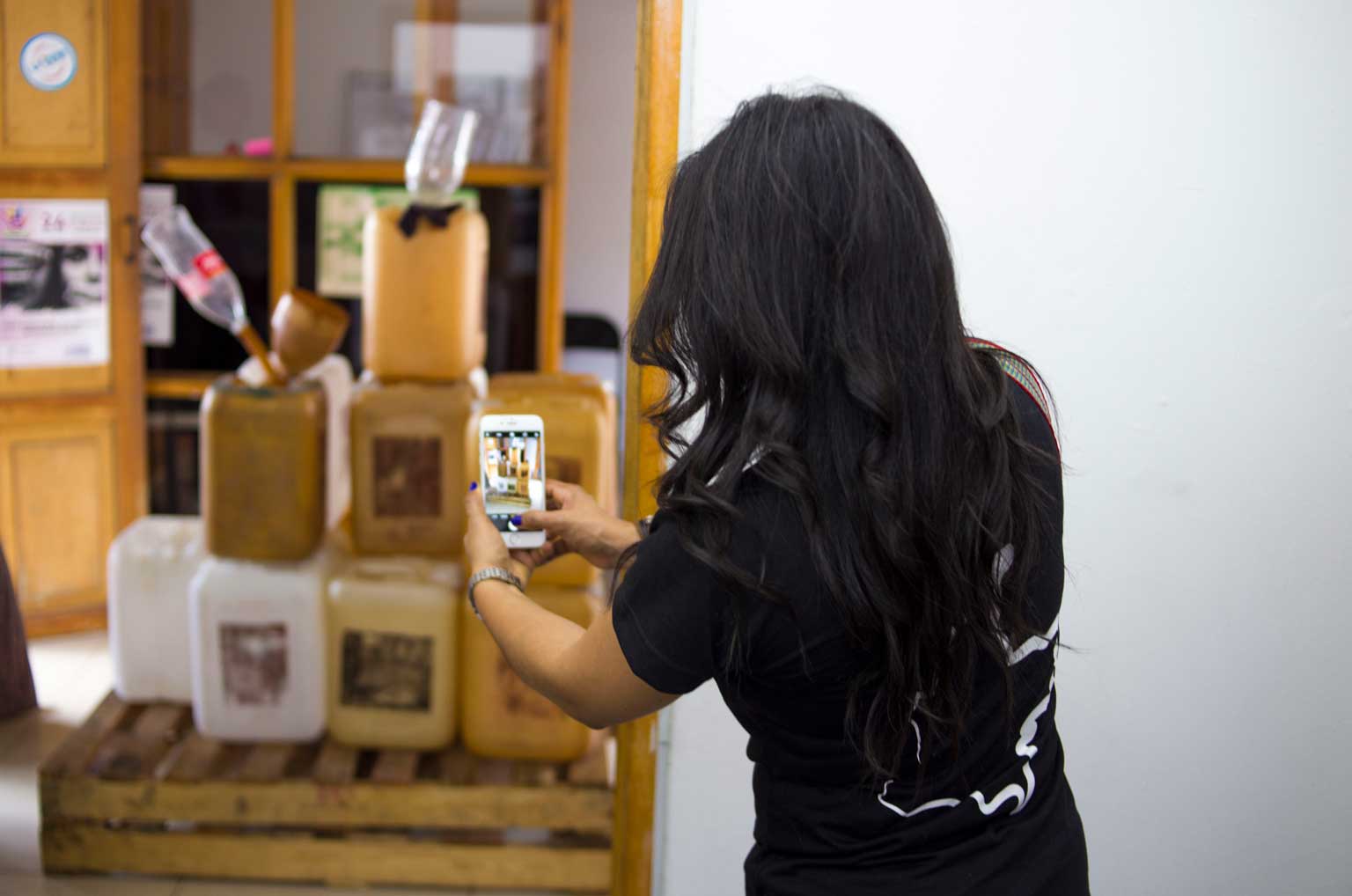
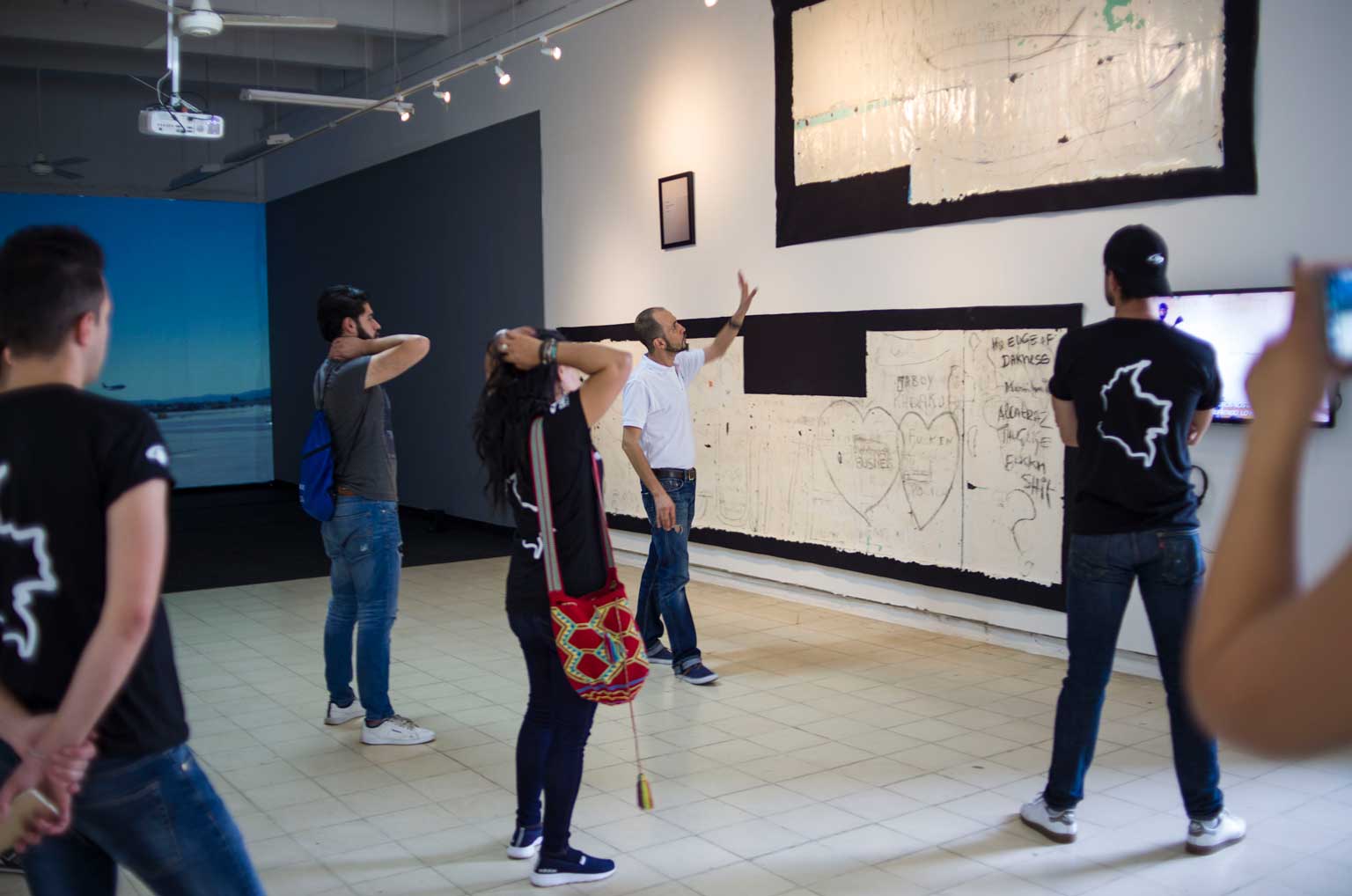
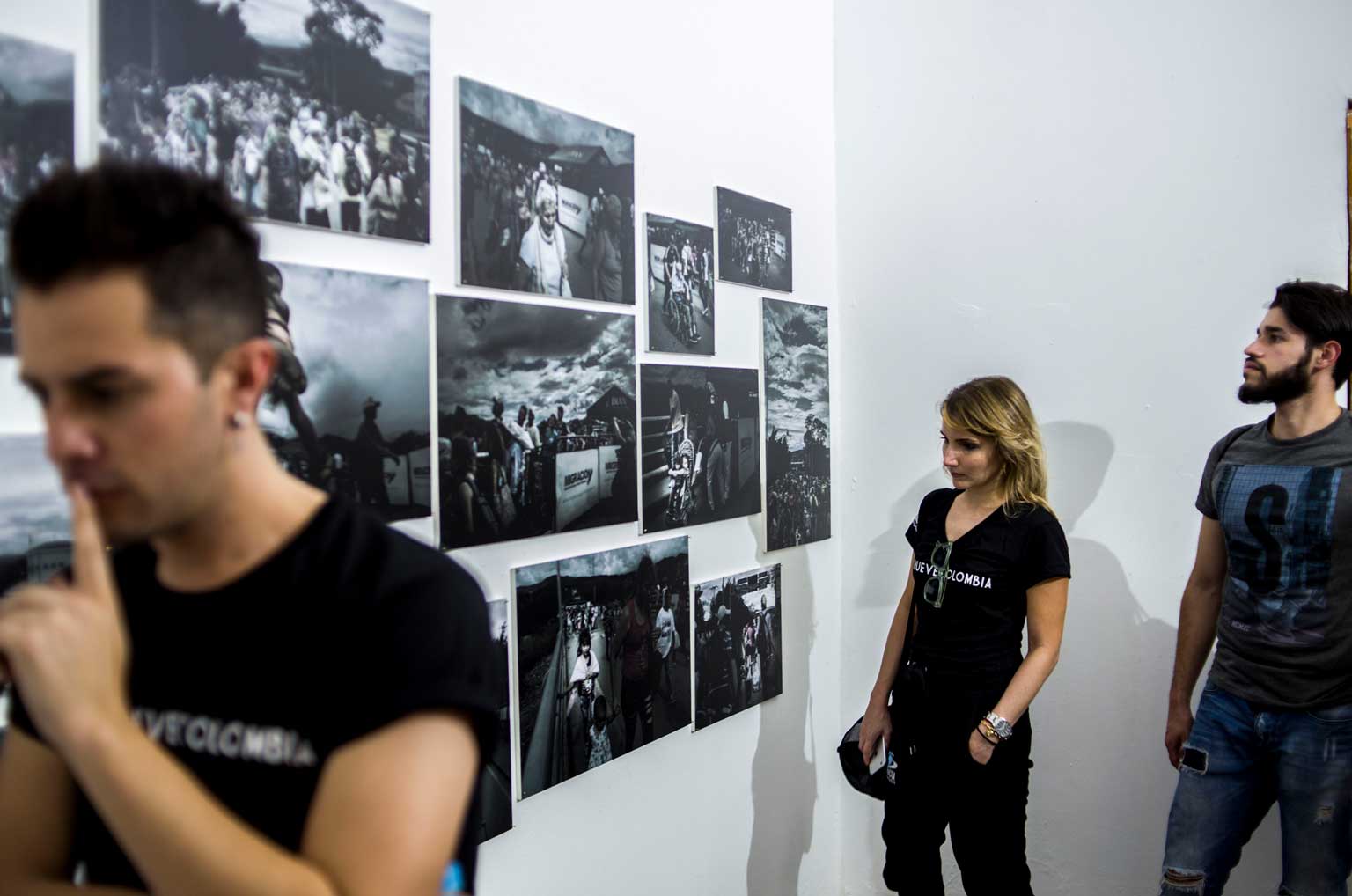
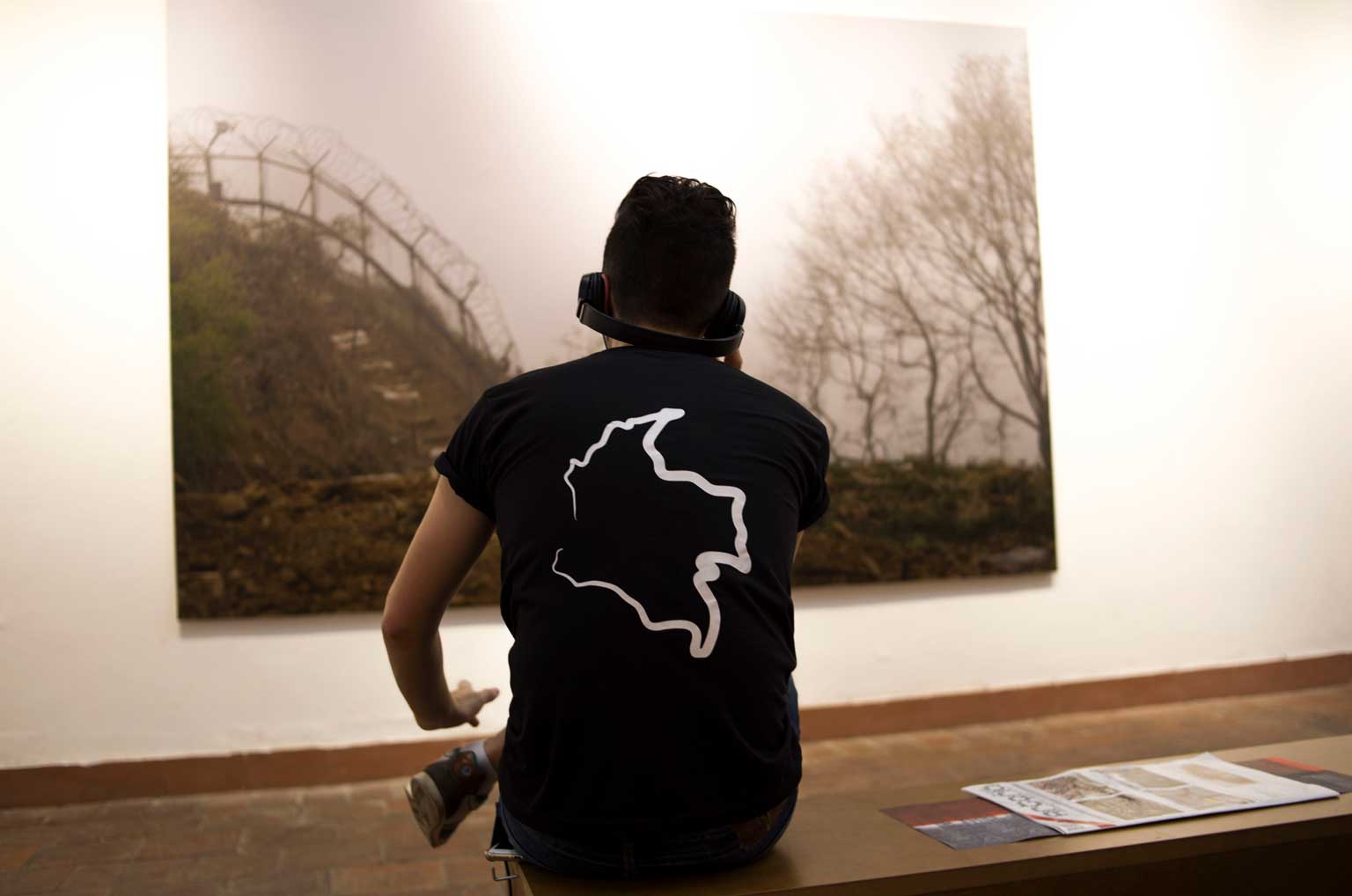
A group of television stars and digital influencers convened by Caracol TV visited JUNTOS APARTE 2017 in the framework of #NosMueveColombia, a strategy to make visible the initiatives that throughout the country propose culturally innovative scenarios that bet on social transformation.
Thanks to the Secretariat of Culture and Tourism of the municipality of Cúcuta and to Caracol TV.
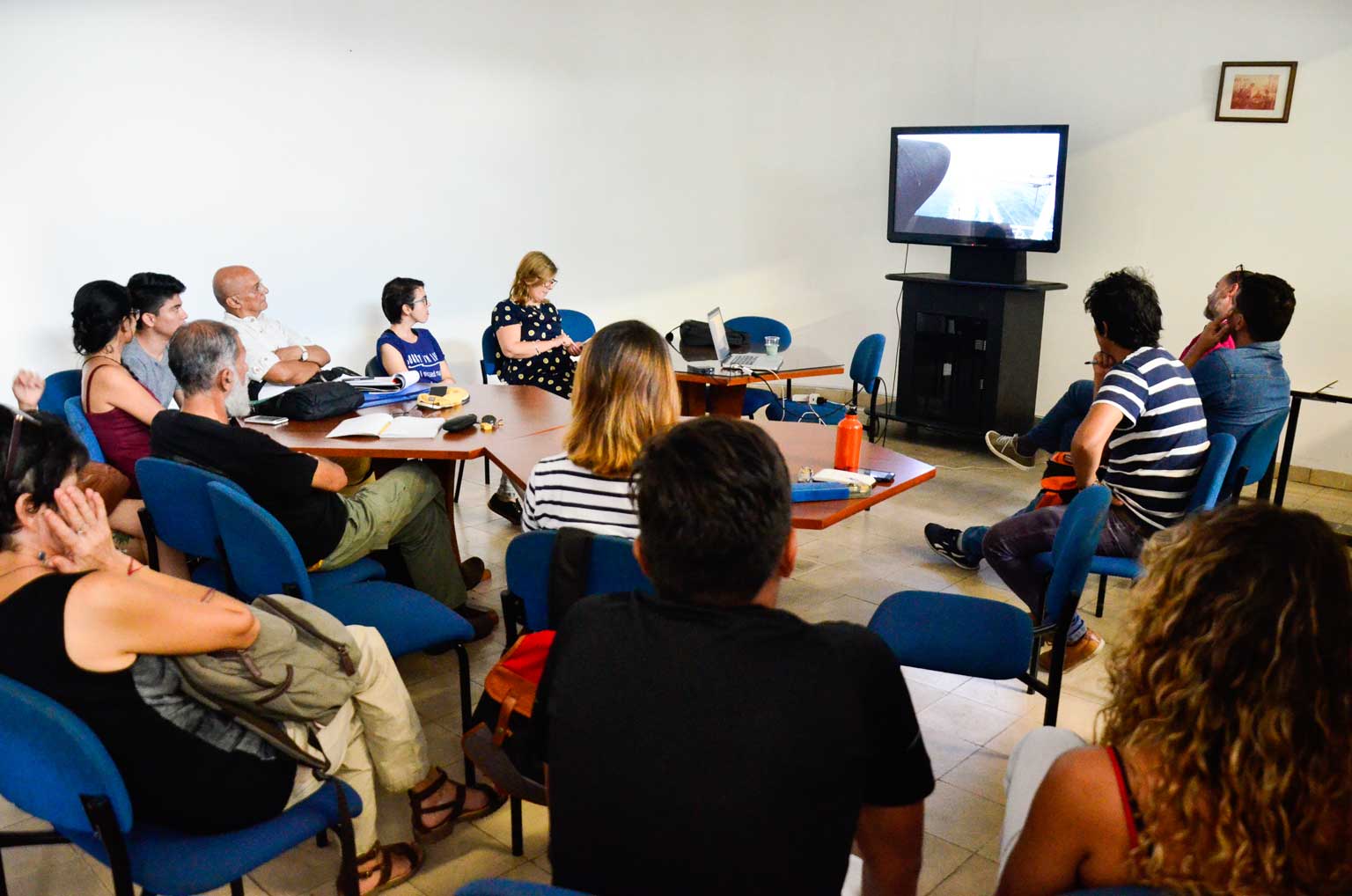
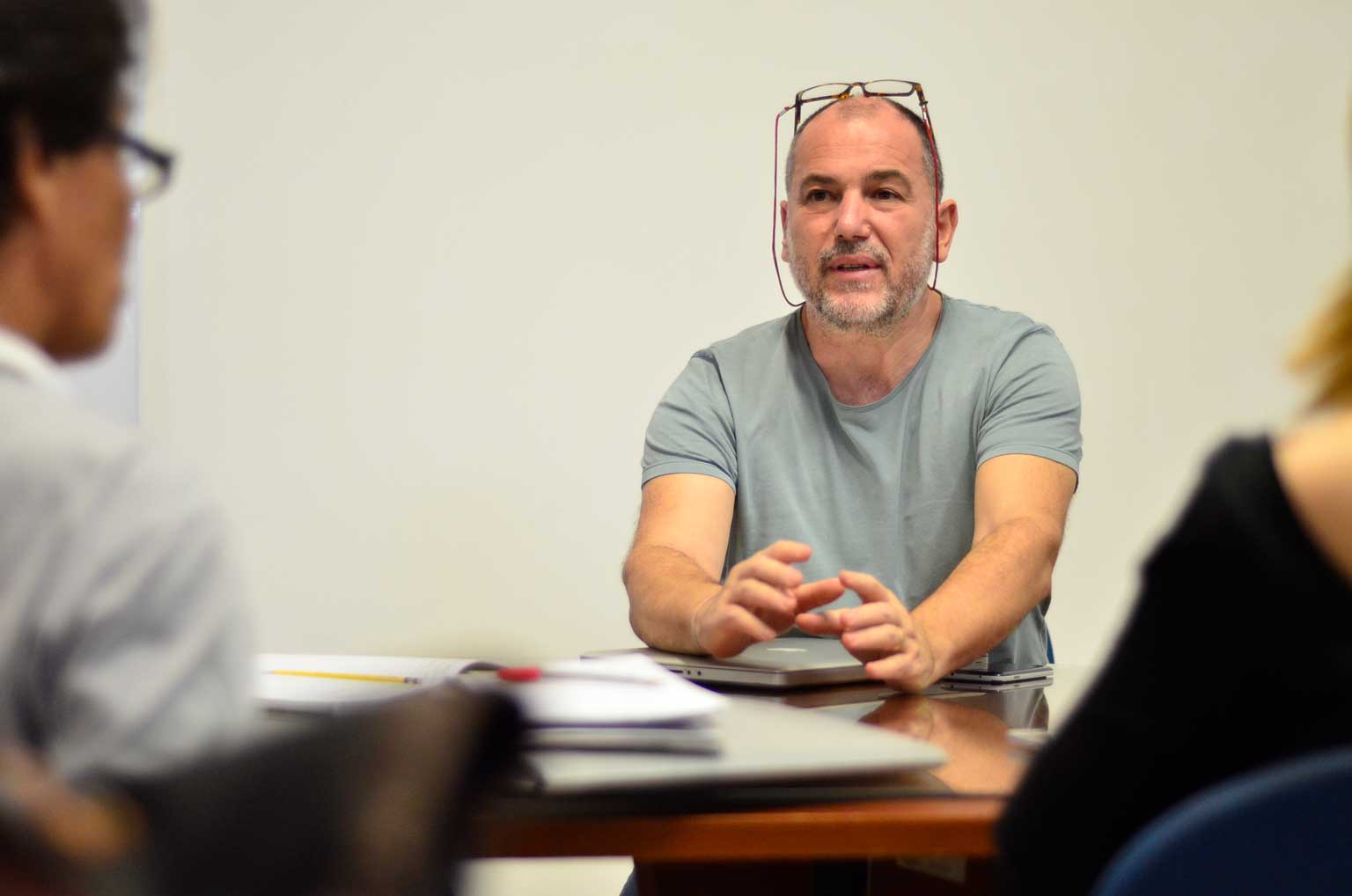
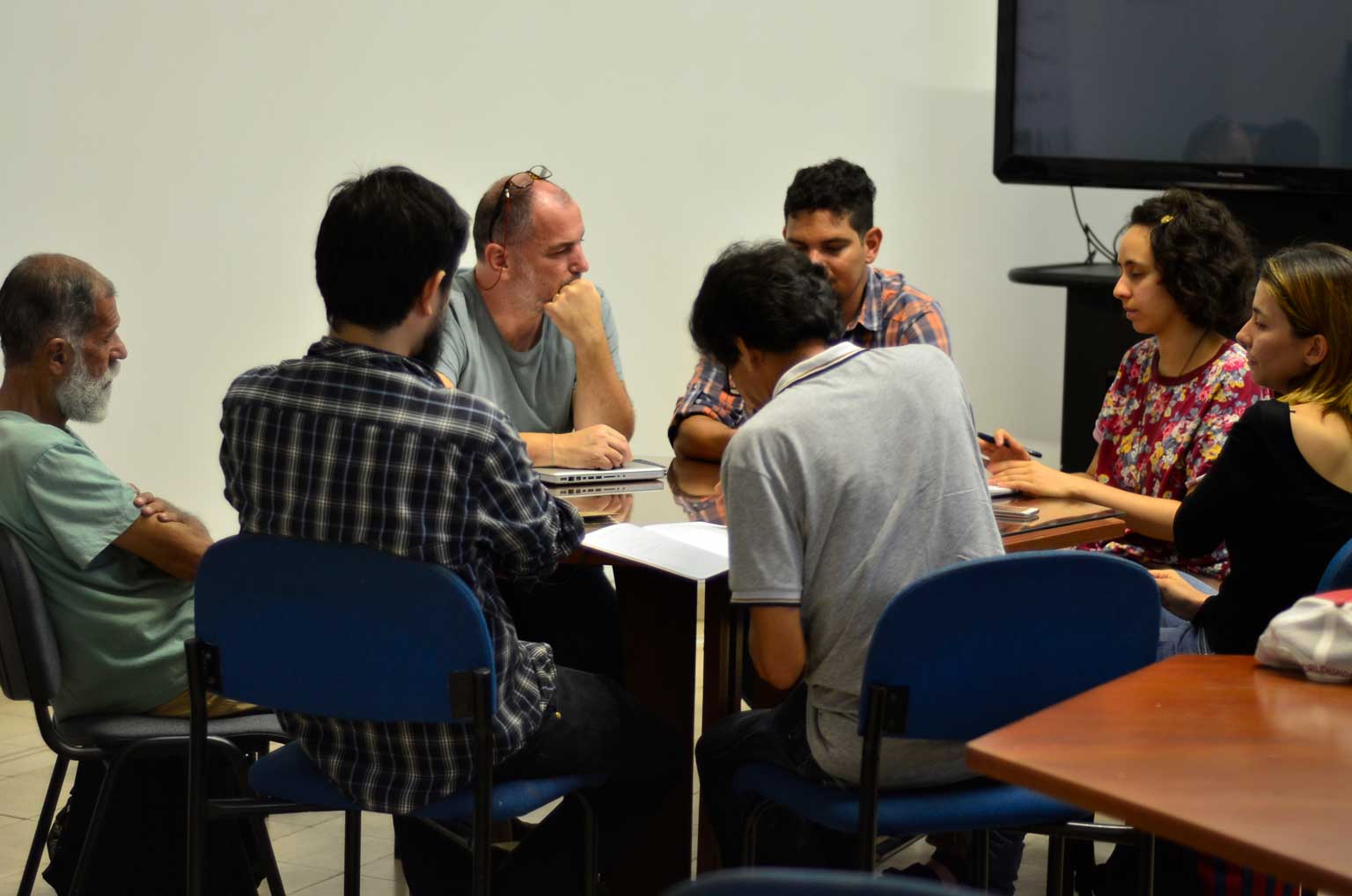
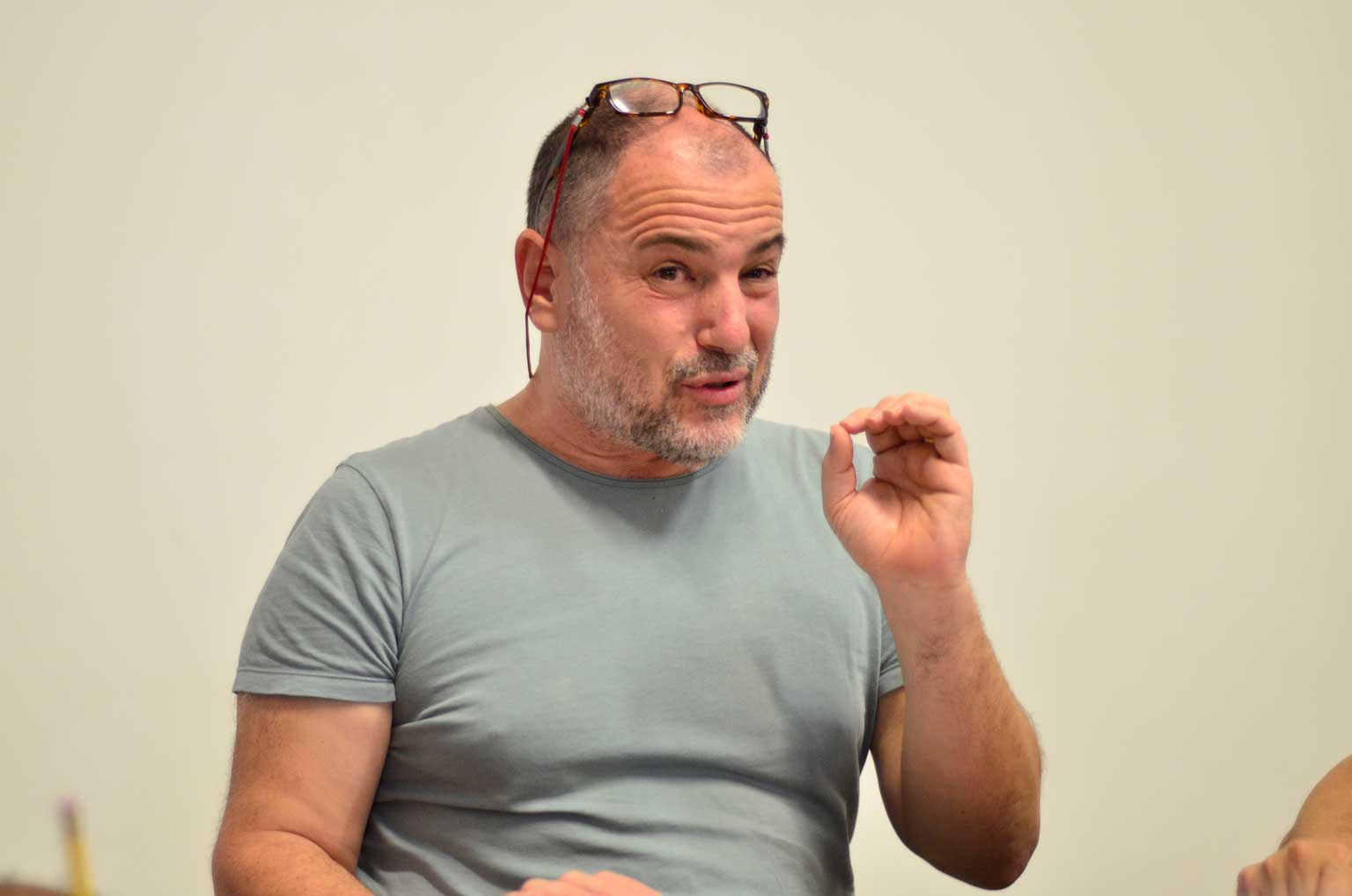
The renowned Albanian artist Adrian Paci developed in TOGETHER PART 2017 the workshop The Encounter – Reclaiming the Potentiality of Affection, sharing with artists and creative people from the border key concepts to approach artistic practice from languages that link poetic form and political gesture.
Thanks to the Colombian Consulate in Barcelona
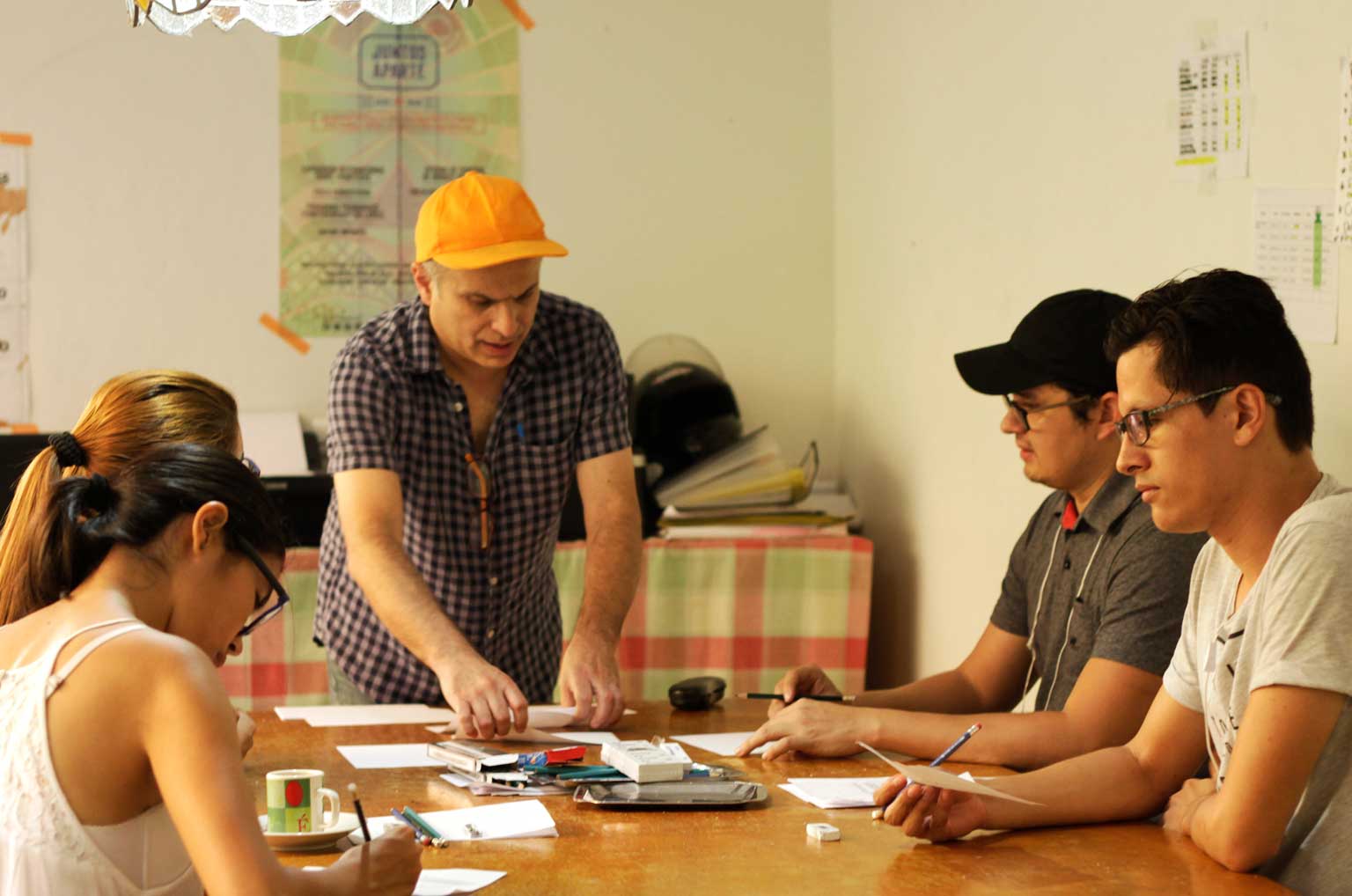
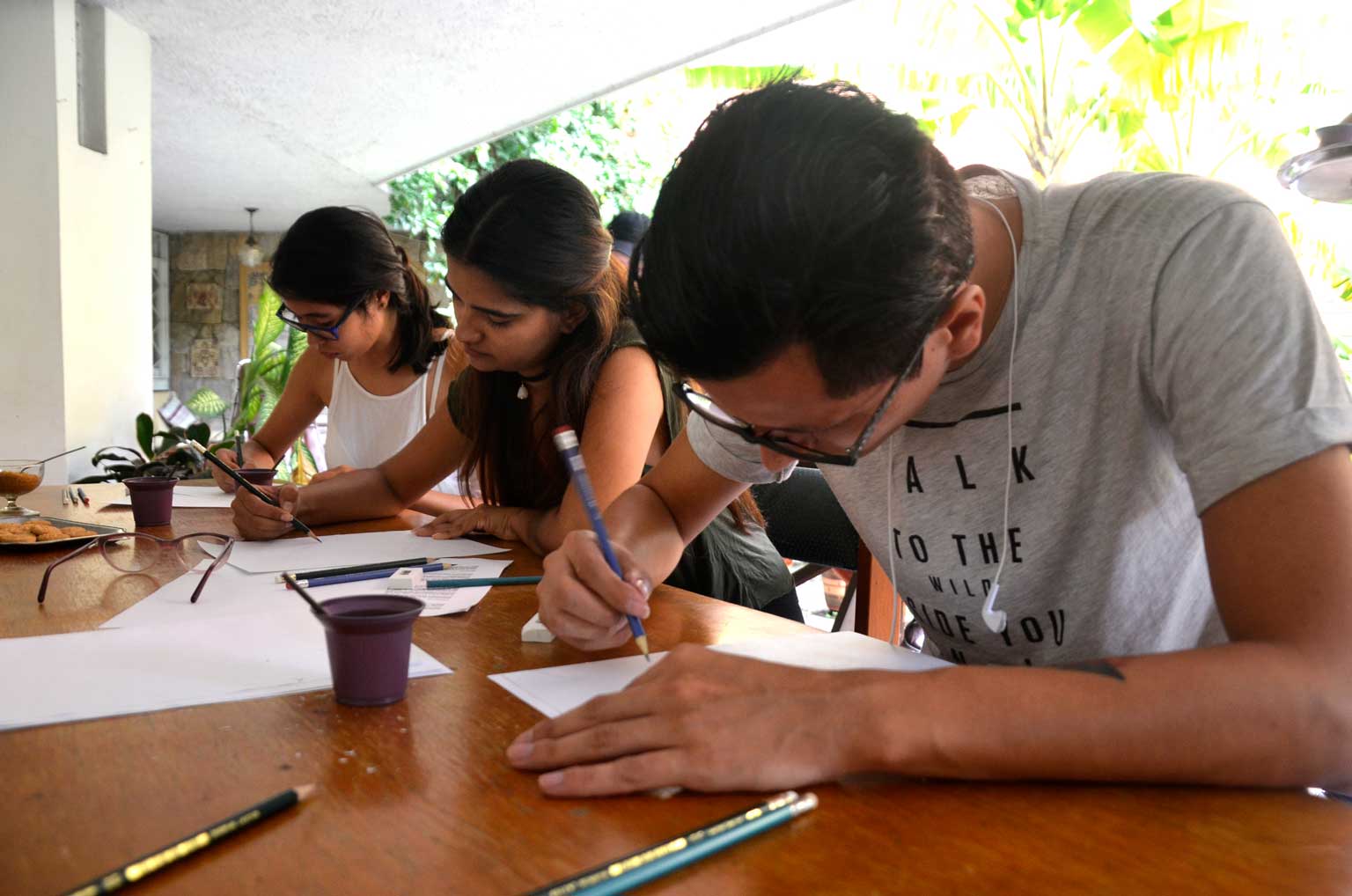
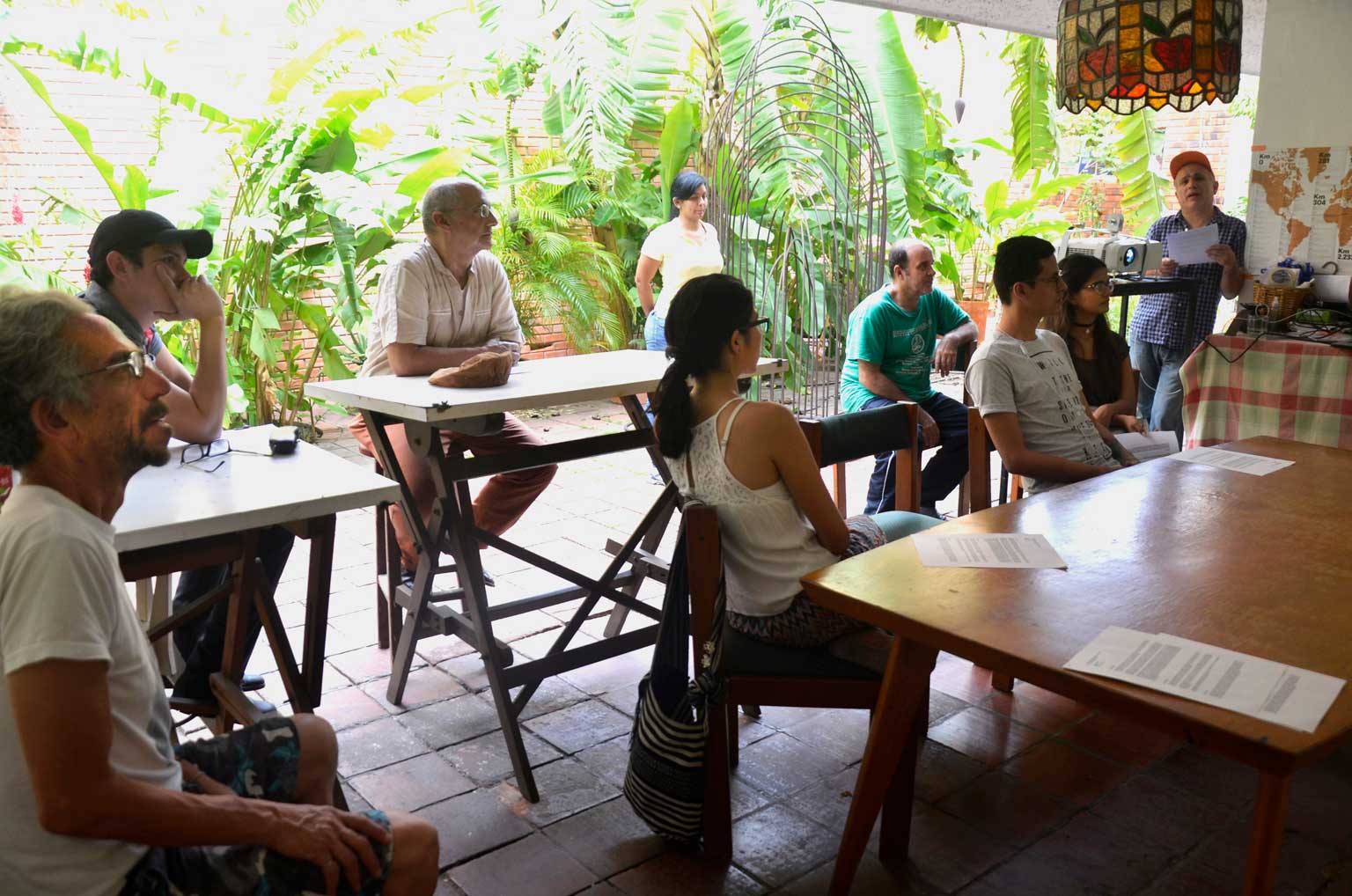
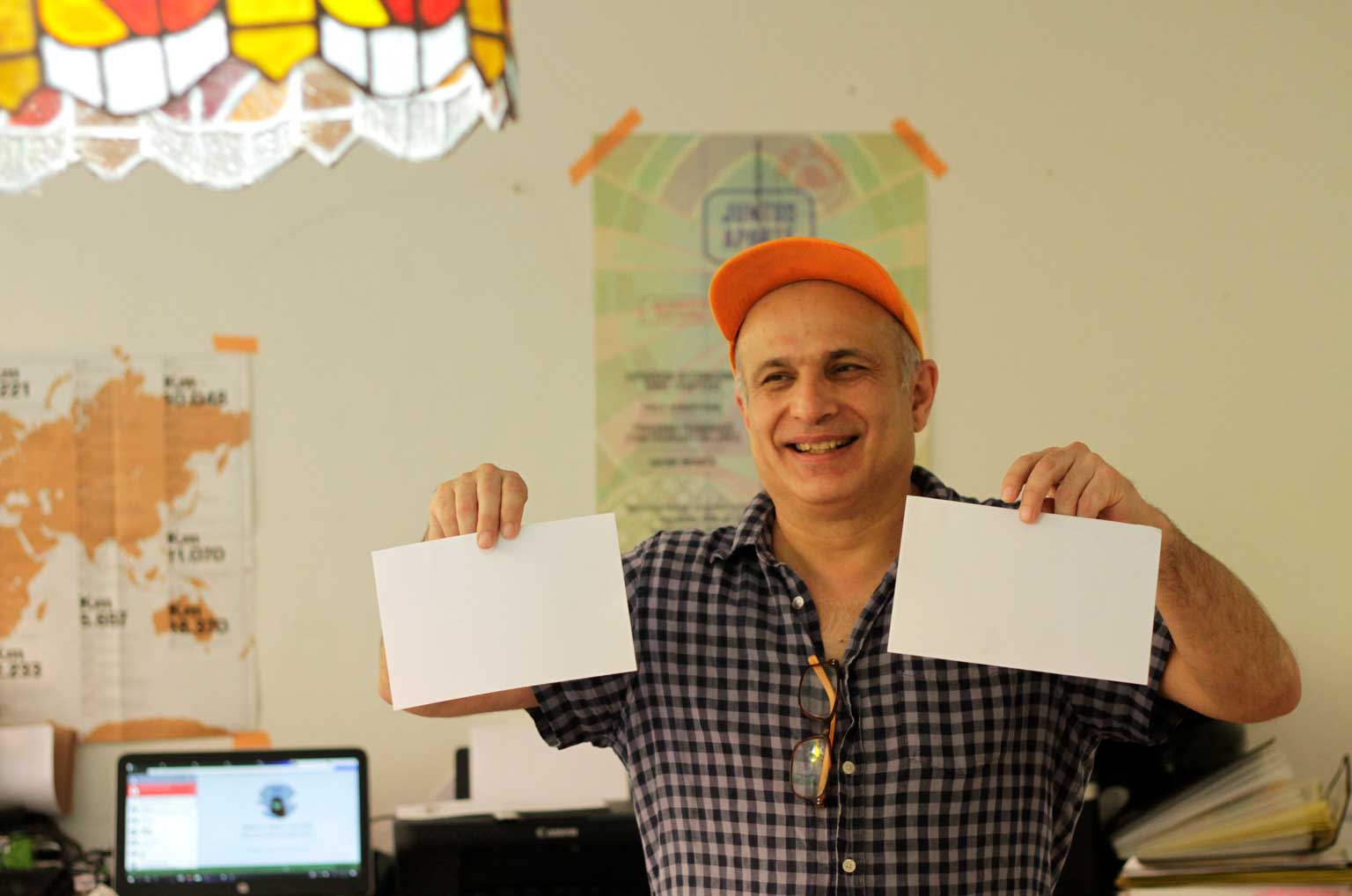
The workshop Drawing the border in JUNTOS APARTE 2017 brought the artist Raimond Chaves back to Cúcuta, to instigate in our creators the reflexive approach to the context based on the drawing log, an instrument of contemporary communication capable of establishing new relationships and imaginaries.
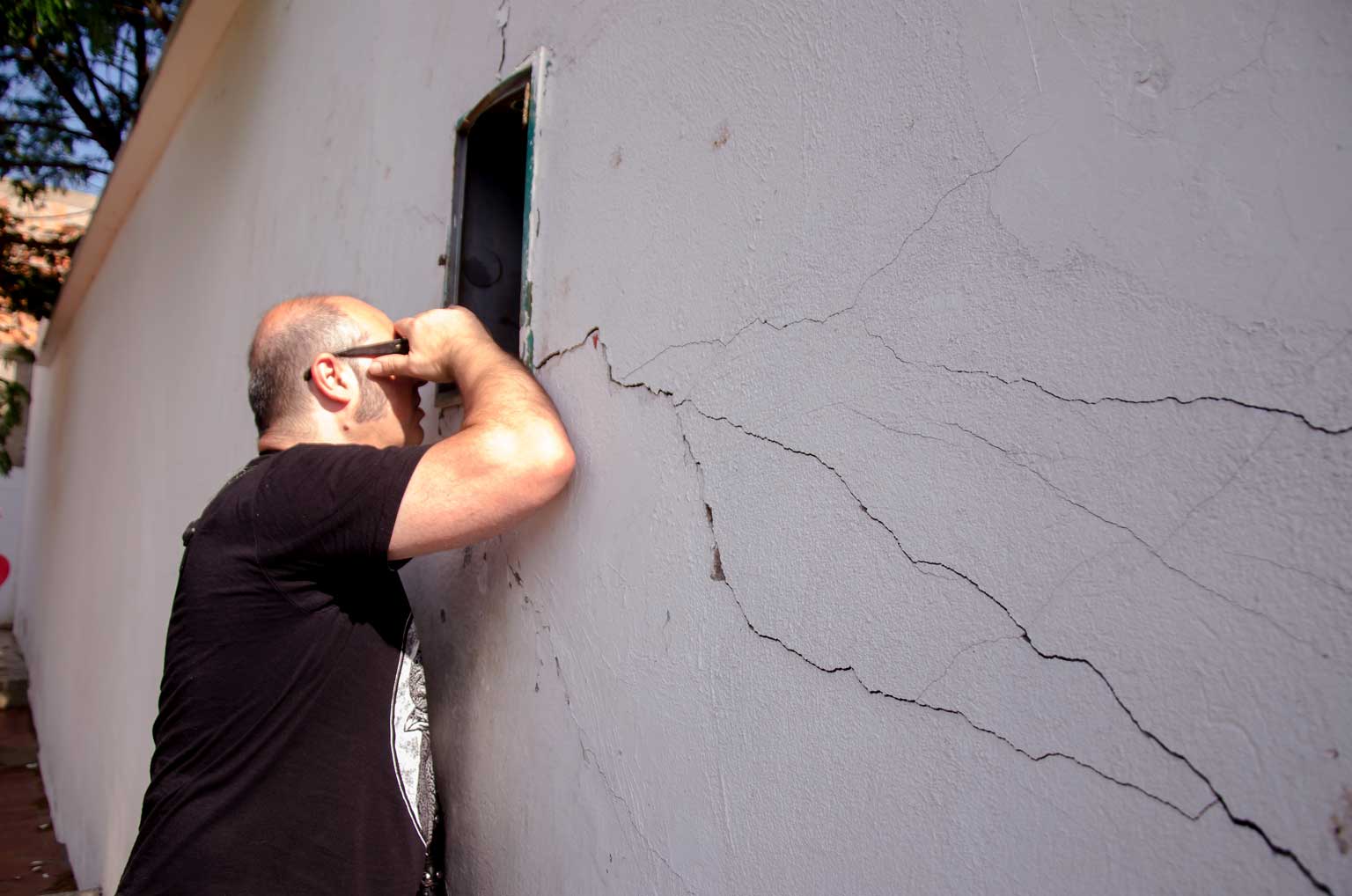
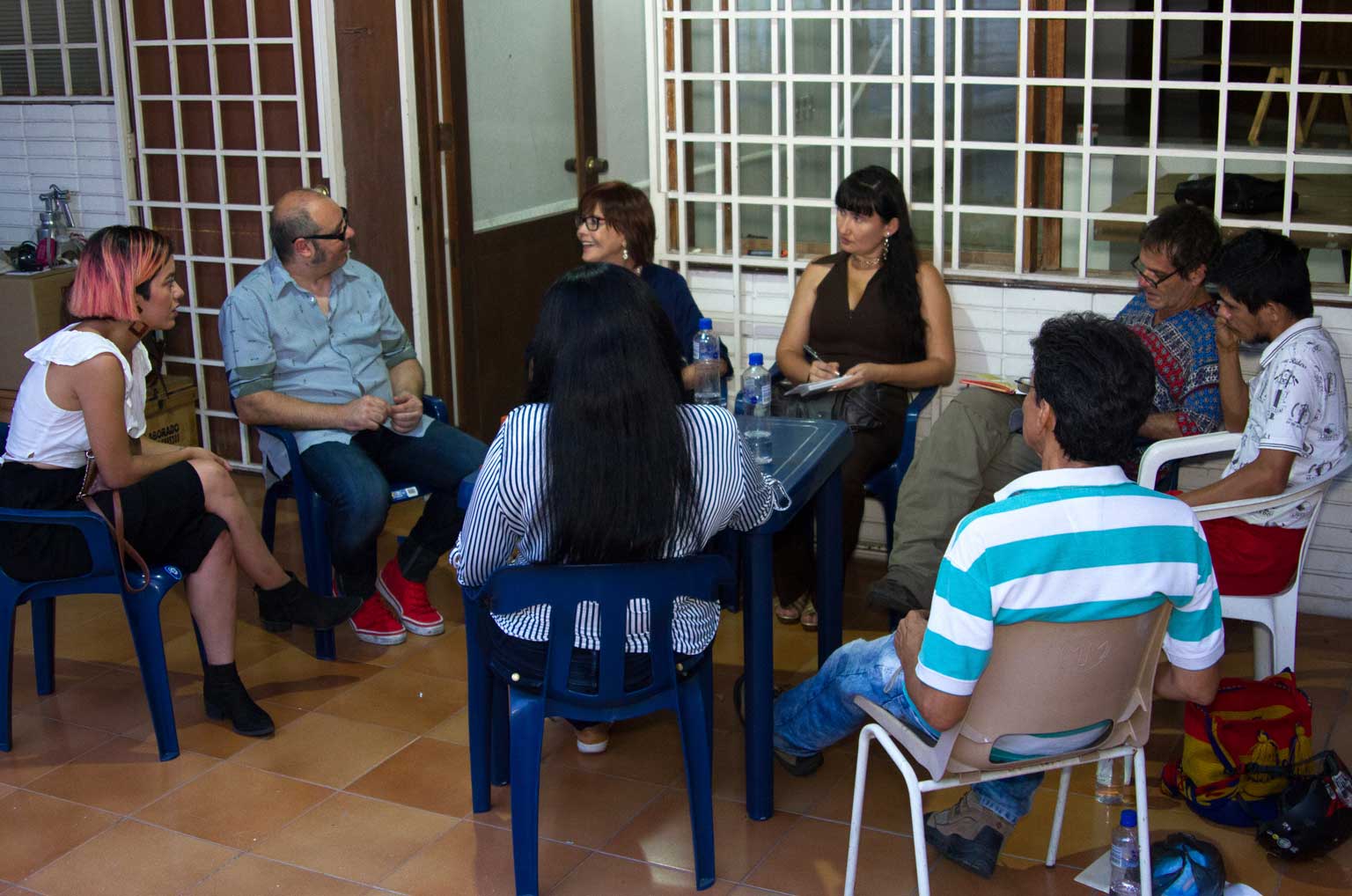
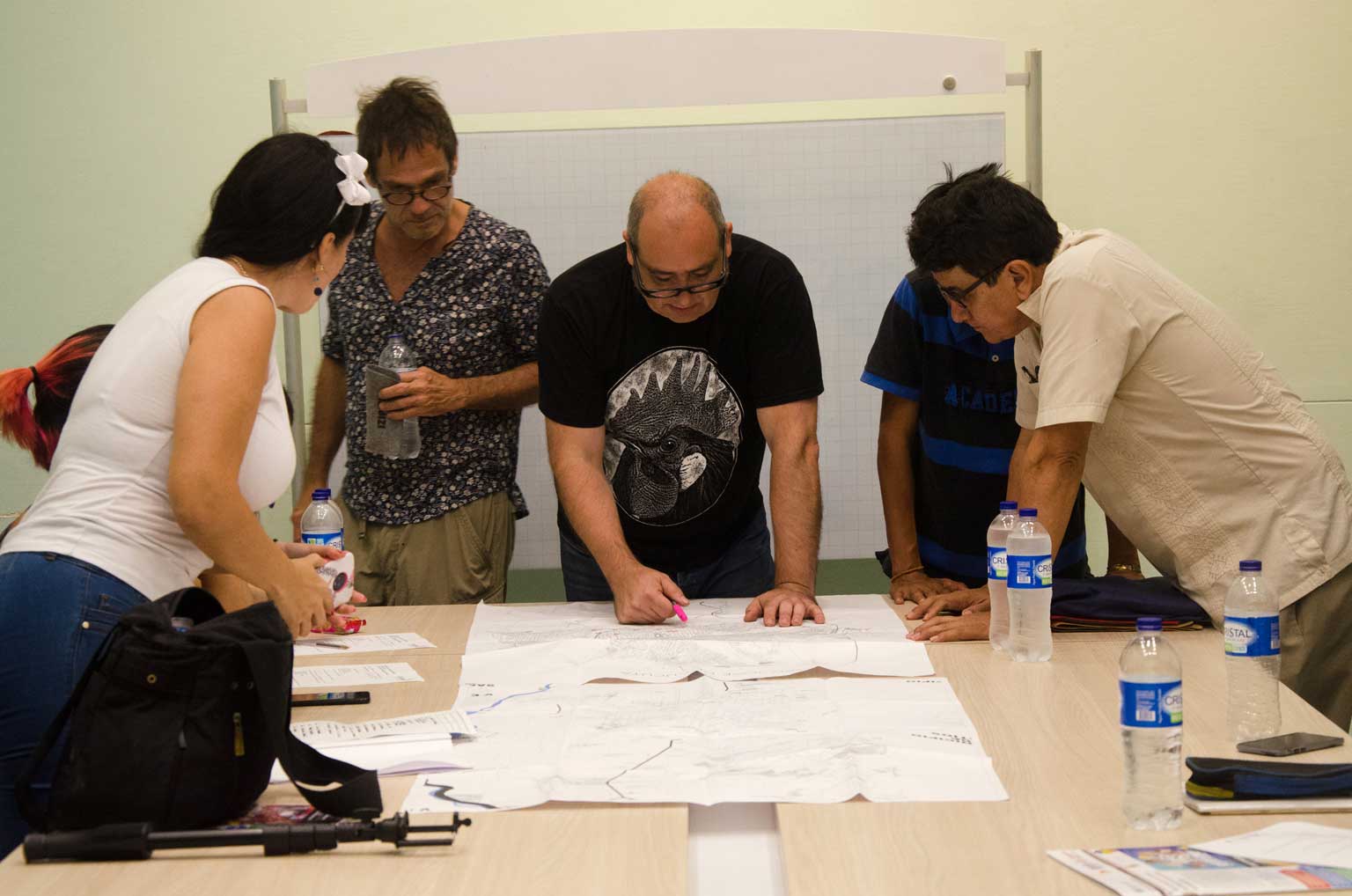
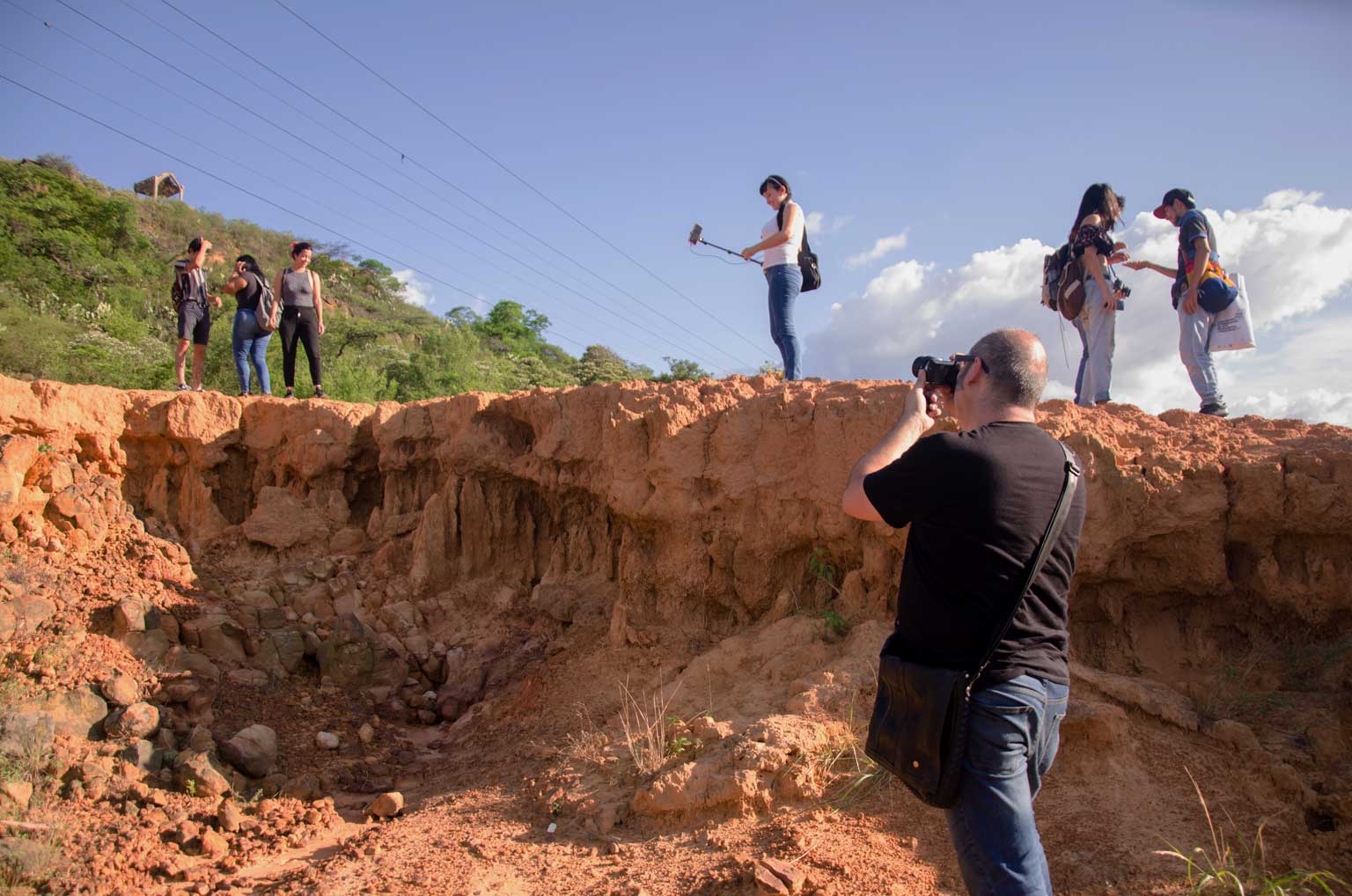
In JUNTOS APARTE 2019, the Spanish artist and researcher Ramón Mateos tackled Displaced artistic practices with a workshop of the same name, encouraging border creators to approach the context from self-management, plurality and a vision of art that transcends the sector itself.
Thanks to the Spanish Embassy.
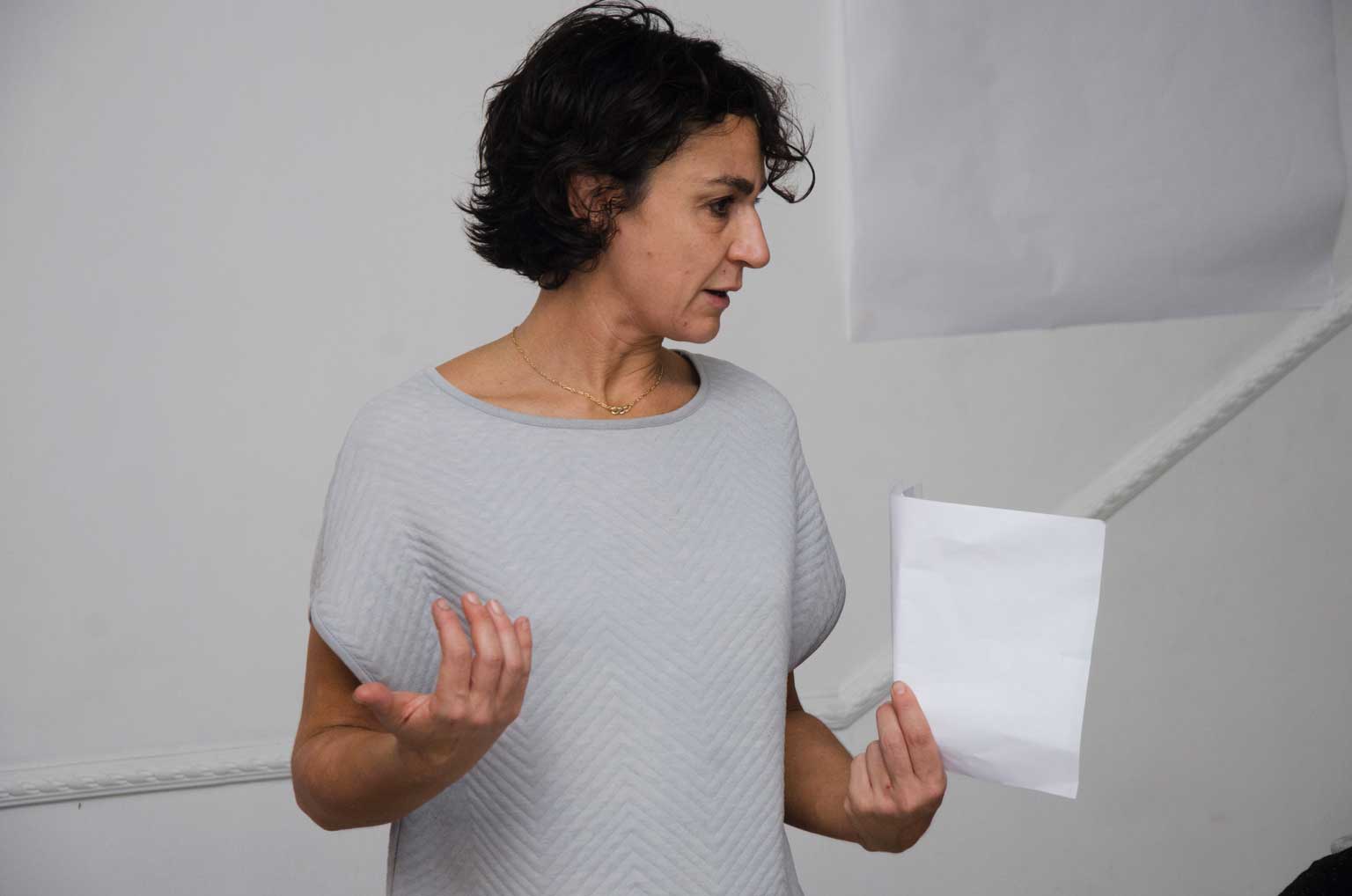
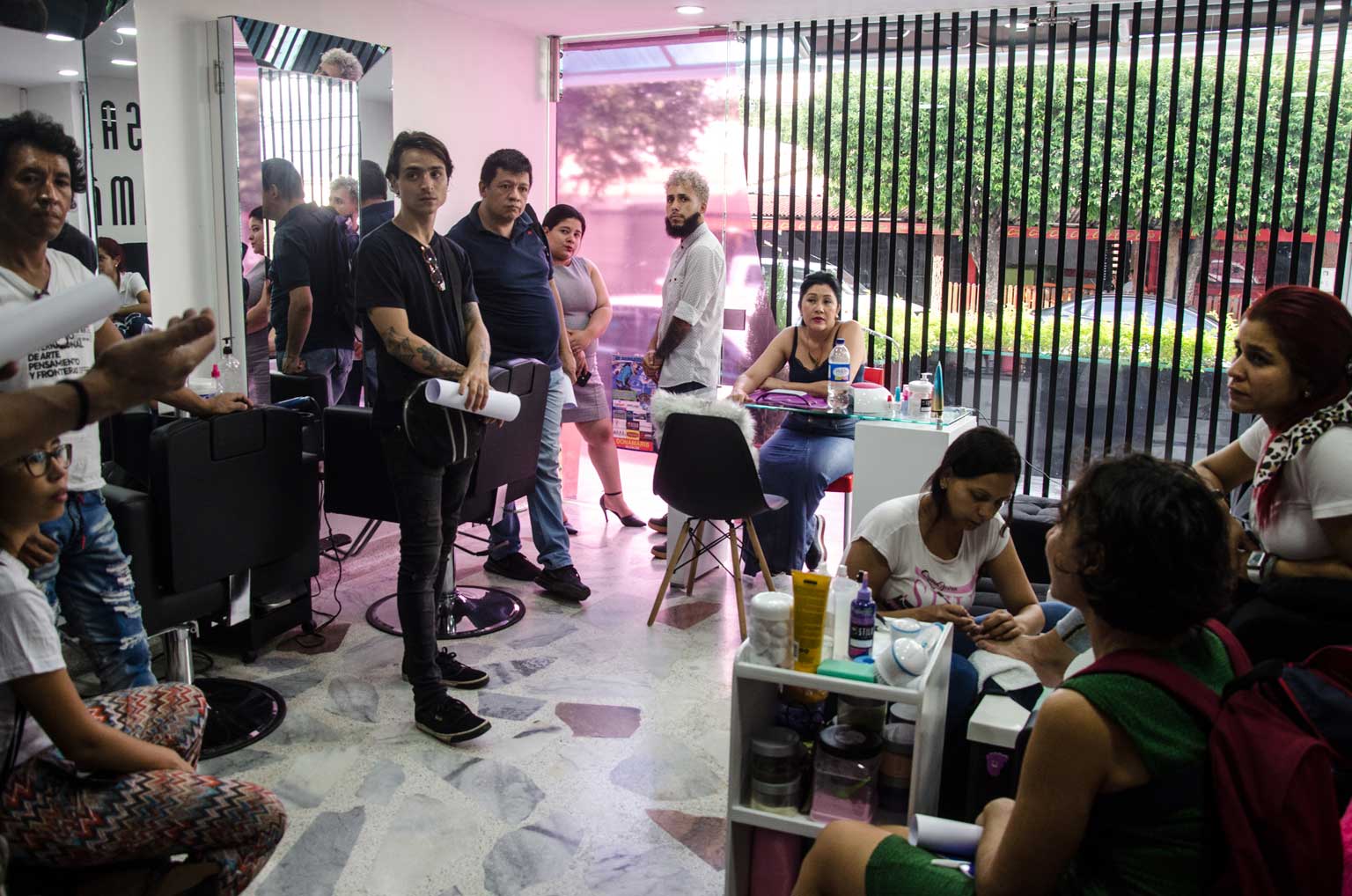
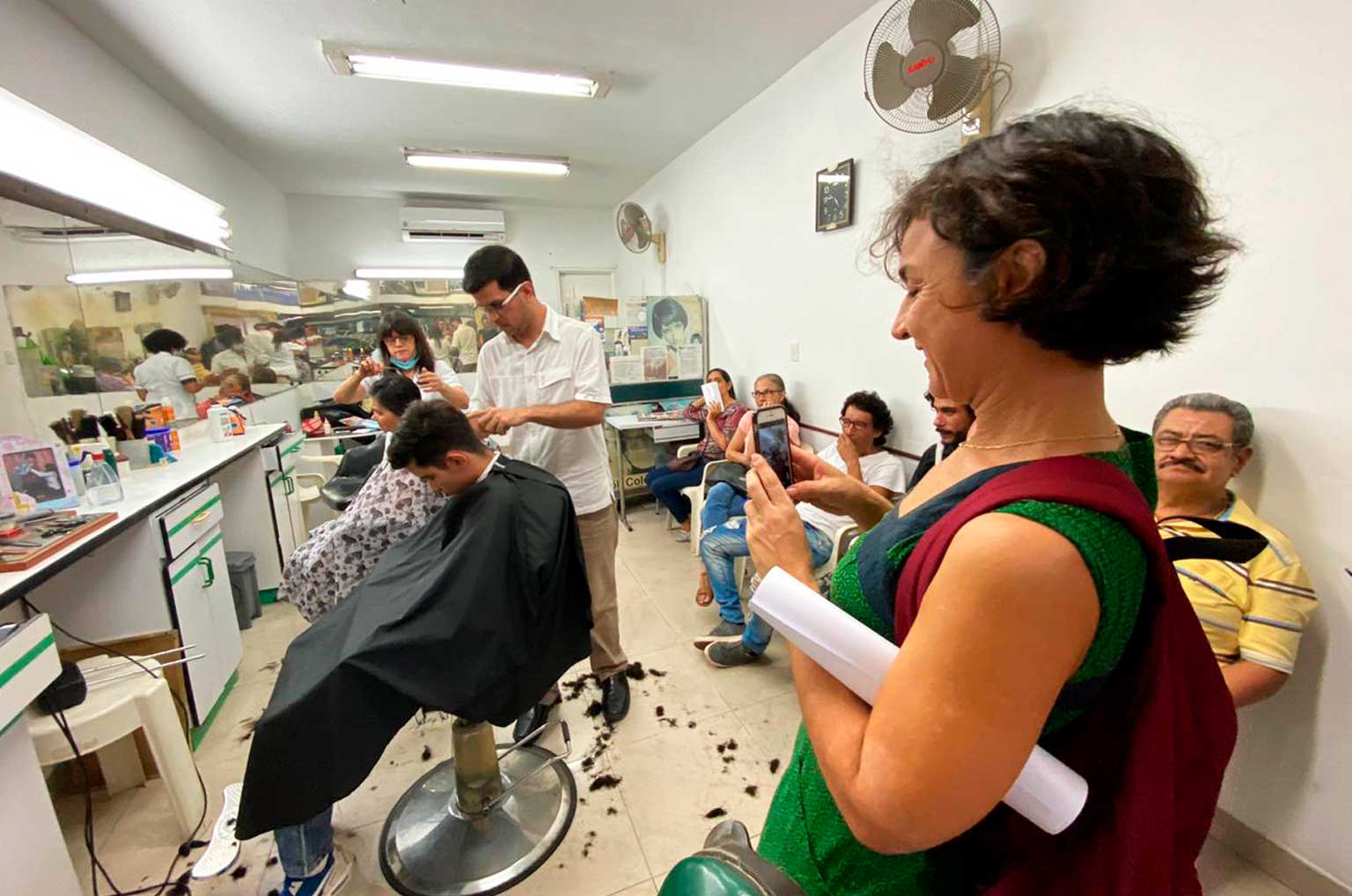
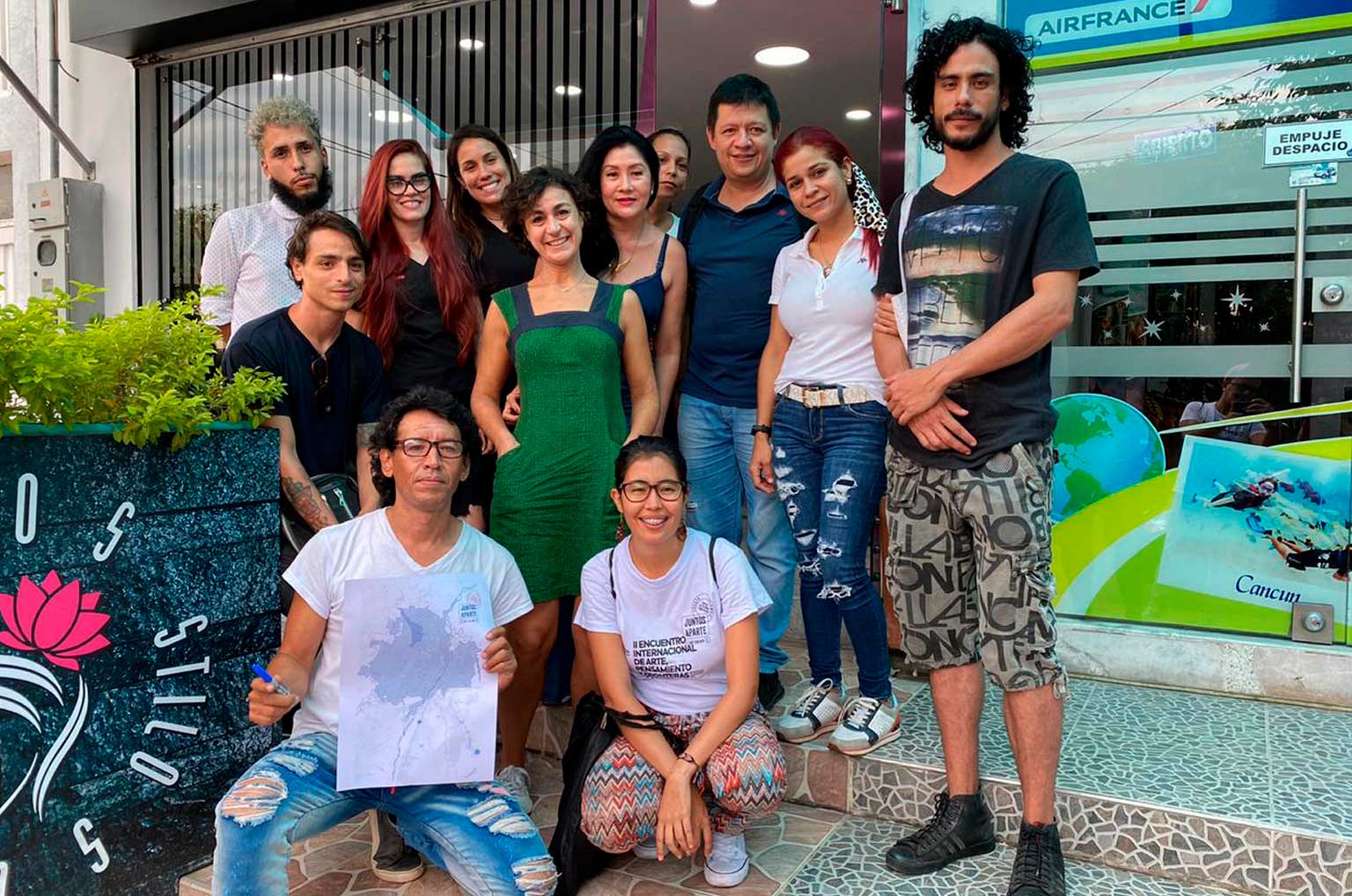
With the workshop Cracking Up Along the Bridge in JUNTOS APARTE 2019, the Canadian artist and researcher Giuliana Racco offered a group of Venezuelan refugee and migrant artists living in Cúcuta with a space for reflection and the generation of integration strategies based on notions such as style or circles of care.
Thanks to the Canadian Embassy and the Institut Ramon Llull
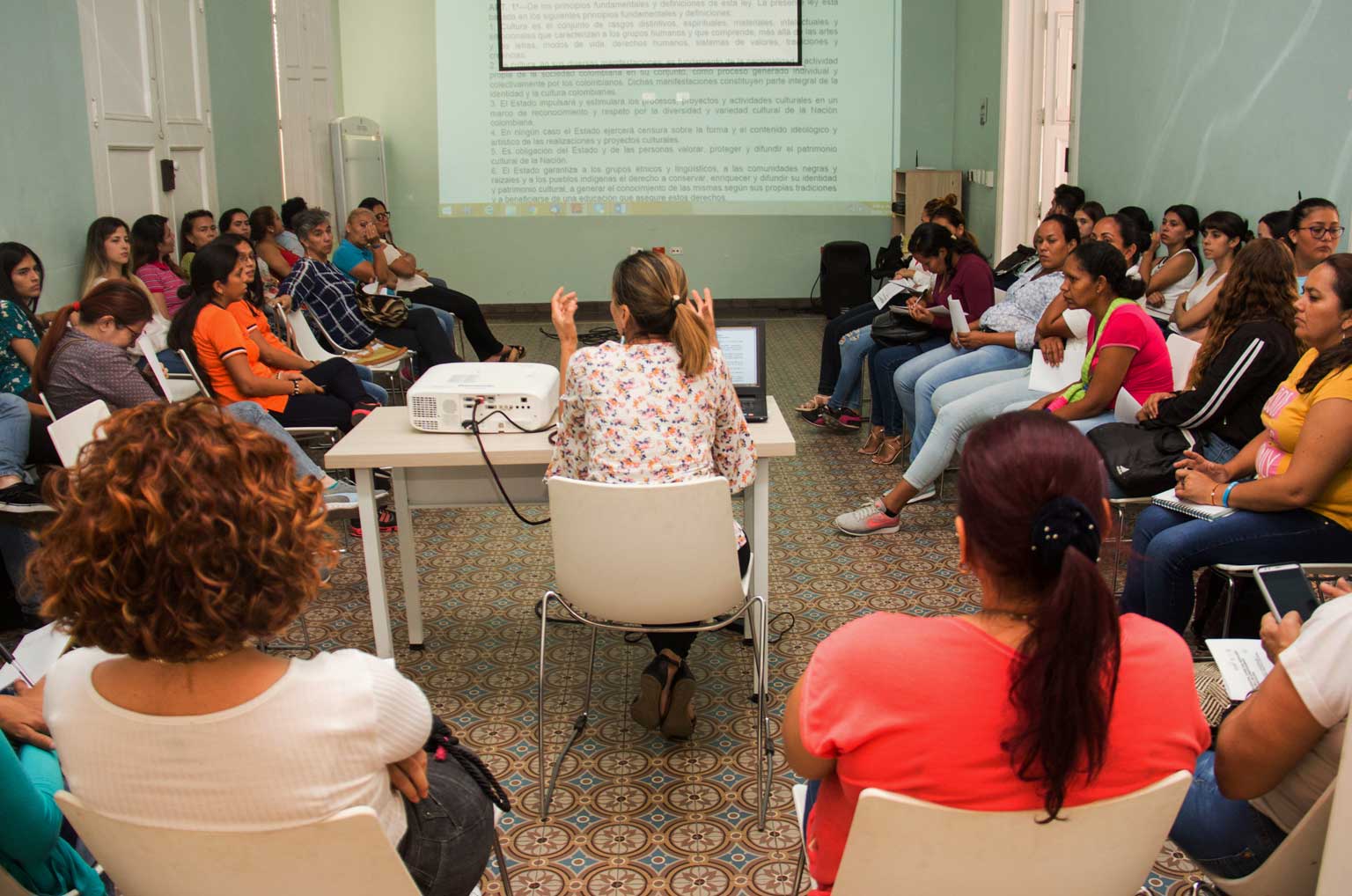
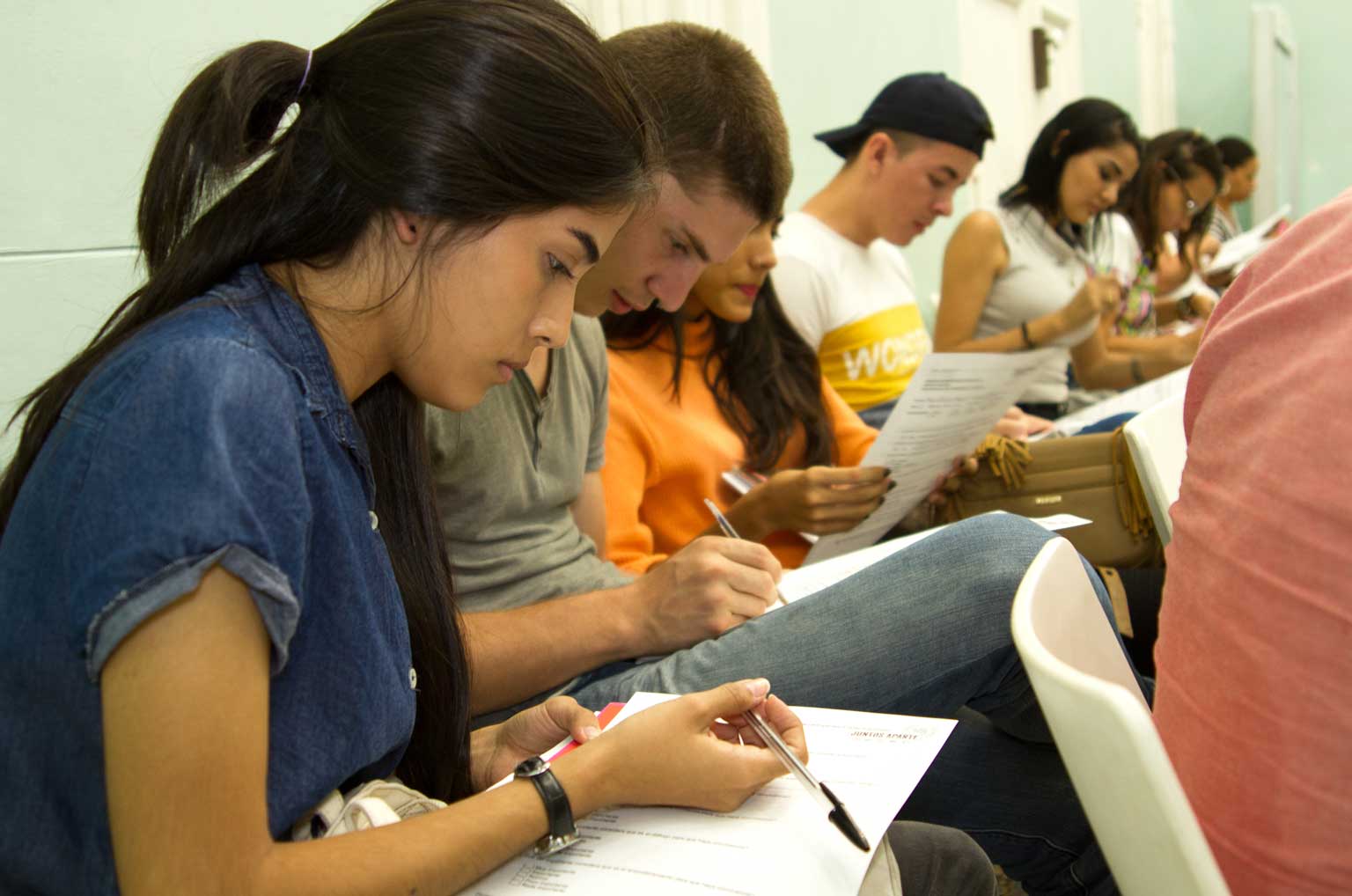
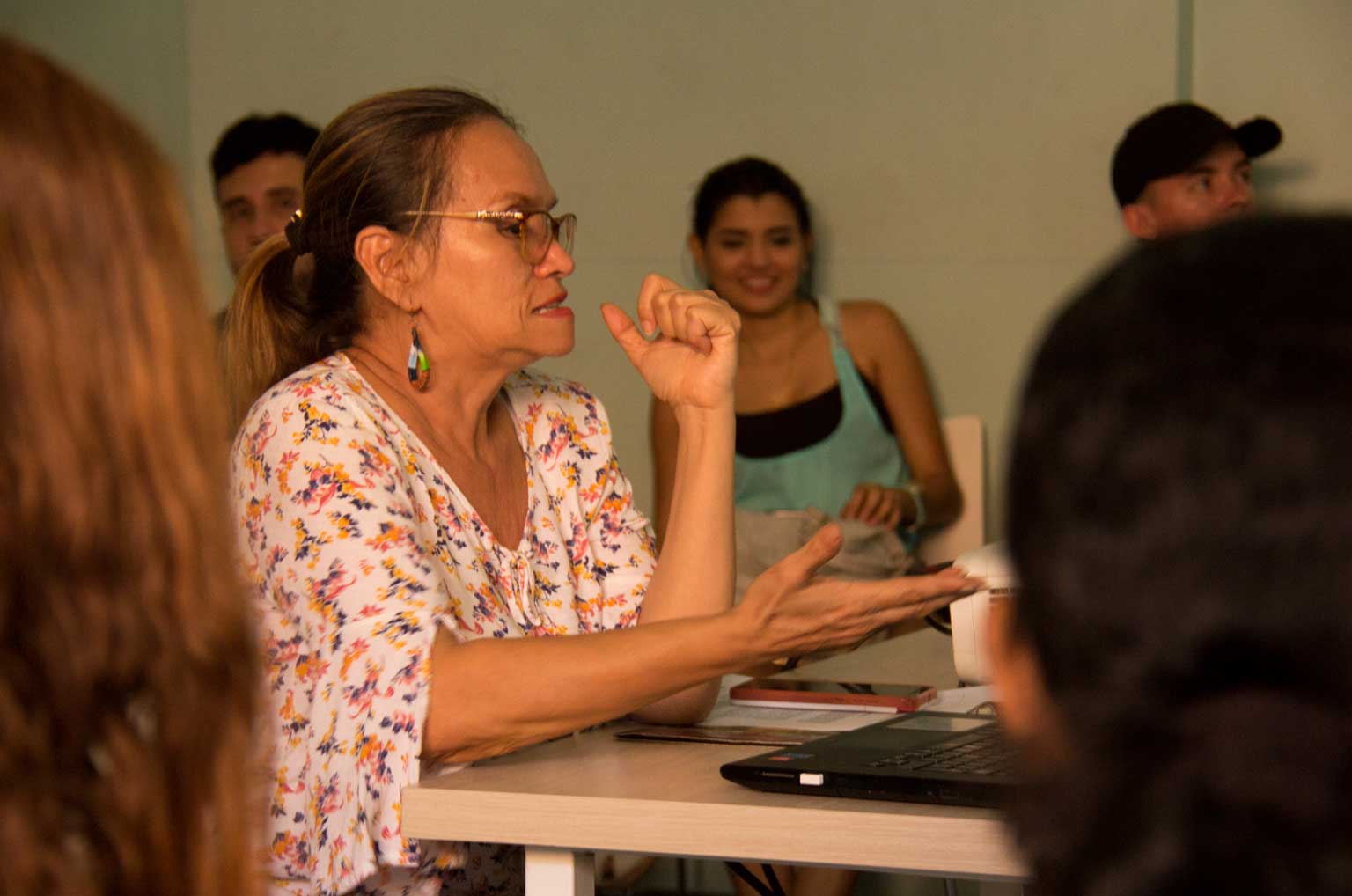
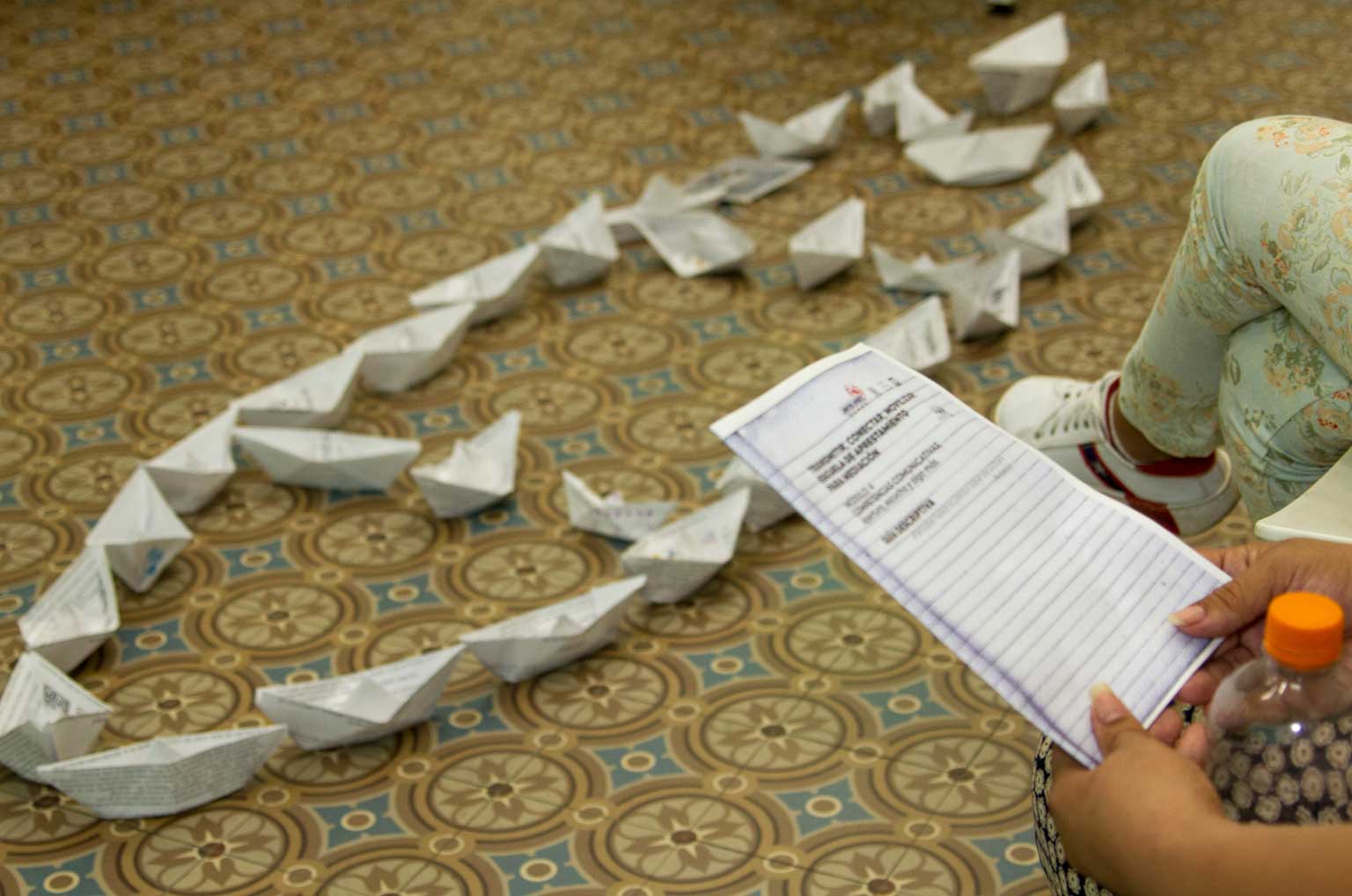
With the School of preparation in artistic mediation, led by the Master Amparo Cardenas, JUNTOS APARTE 2019 took a firm step towards the creation of a community of artistic mediators from the border, appointing altogether mothers head of household, emerging artists and young students.
Thanks to the PAR Program of USAID and ACDIVOCA, the Canadian Embassy and the Centro Nacional de Memoria Histórica.
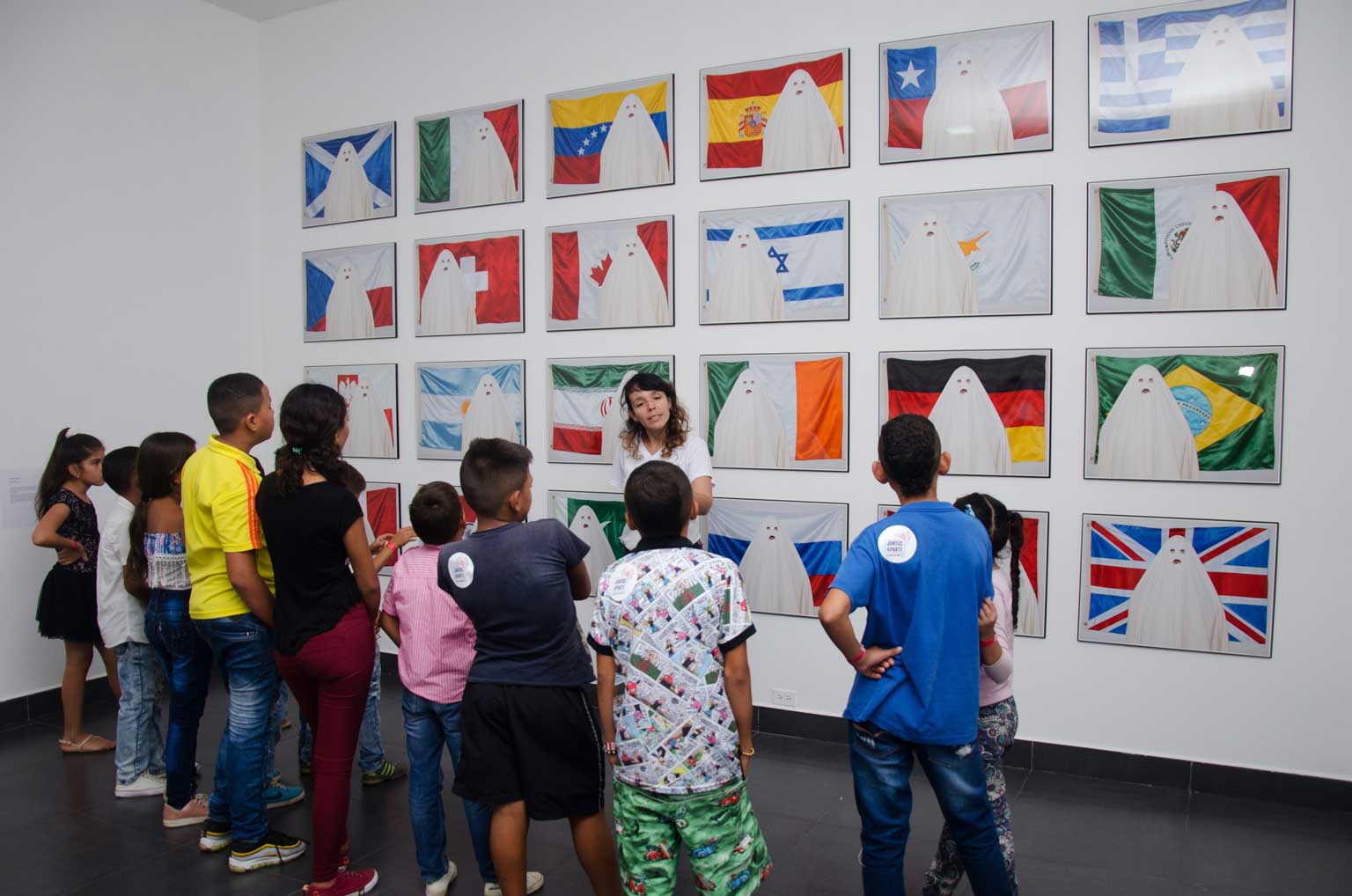
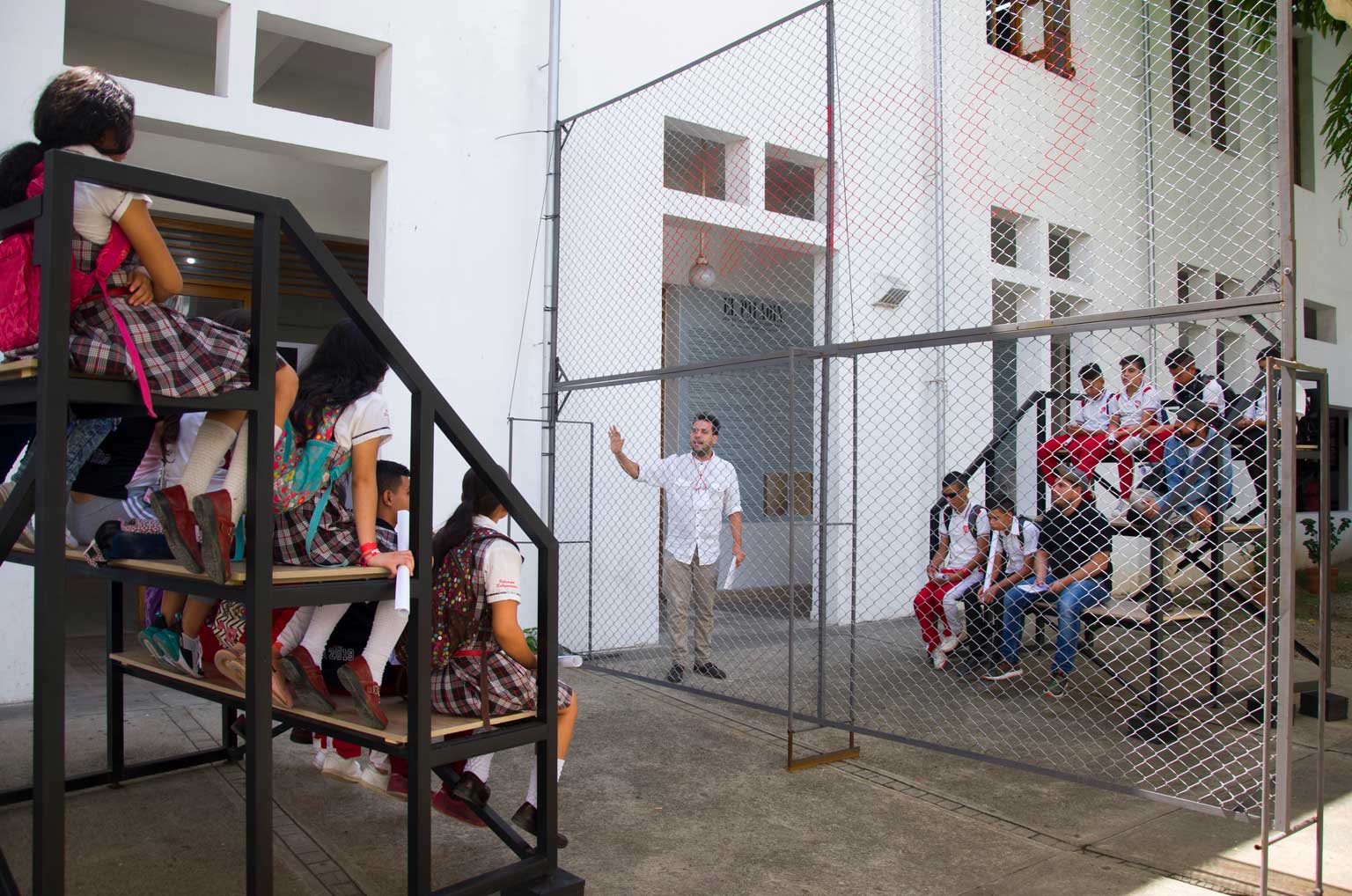
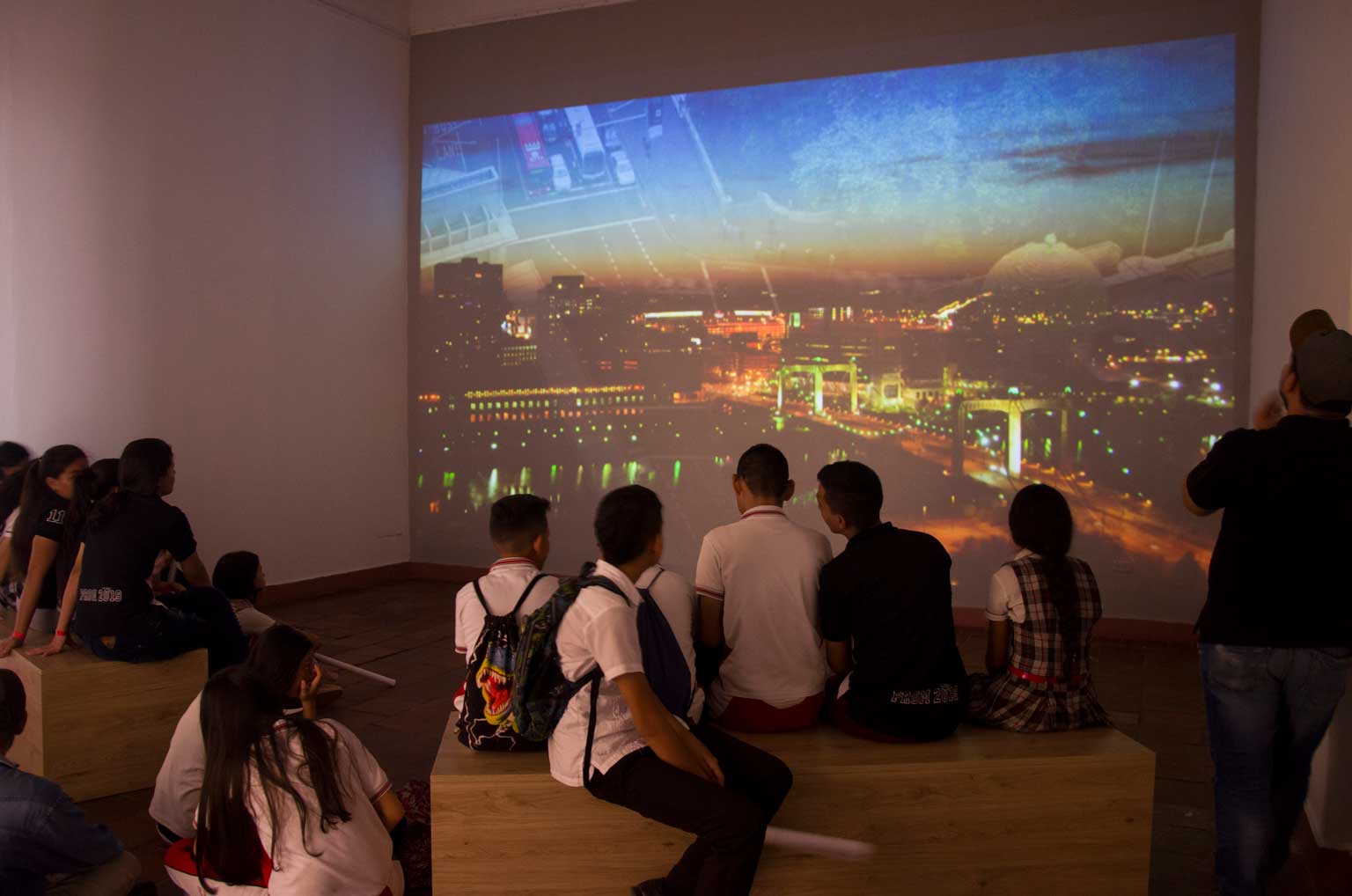
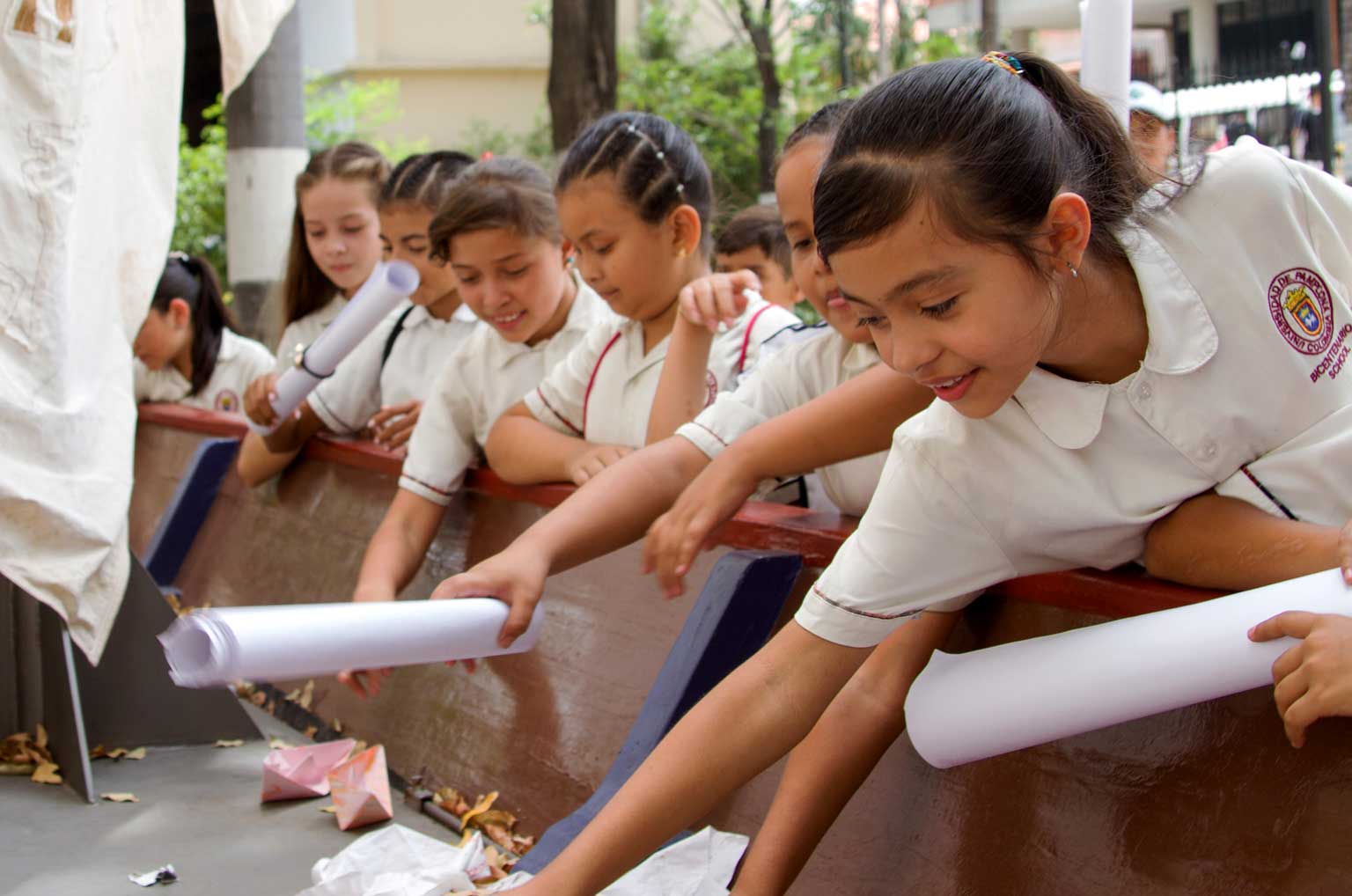
Thanks to JUNTOS APARTE 2019 Children’s Safari, children from the Colombian-Venezuelan border traveled through the exhibition circuit accompanied by attendees and our mediation team, addressing exercises to raise awareness and strengthen coexistence among the new generation.
Thanks to the PAR Program of USAID and ACDIVOCA, IOM with the support of PRM, UNHCR and Travesías.
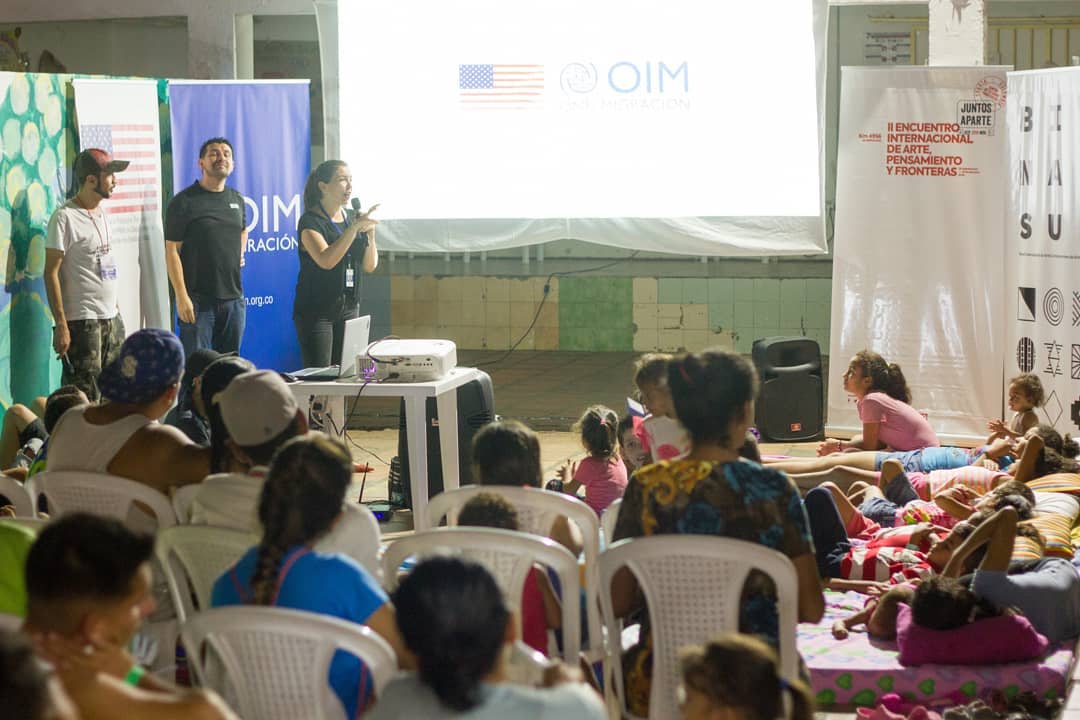
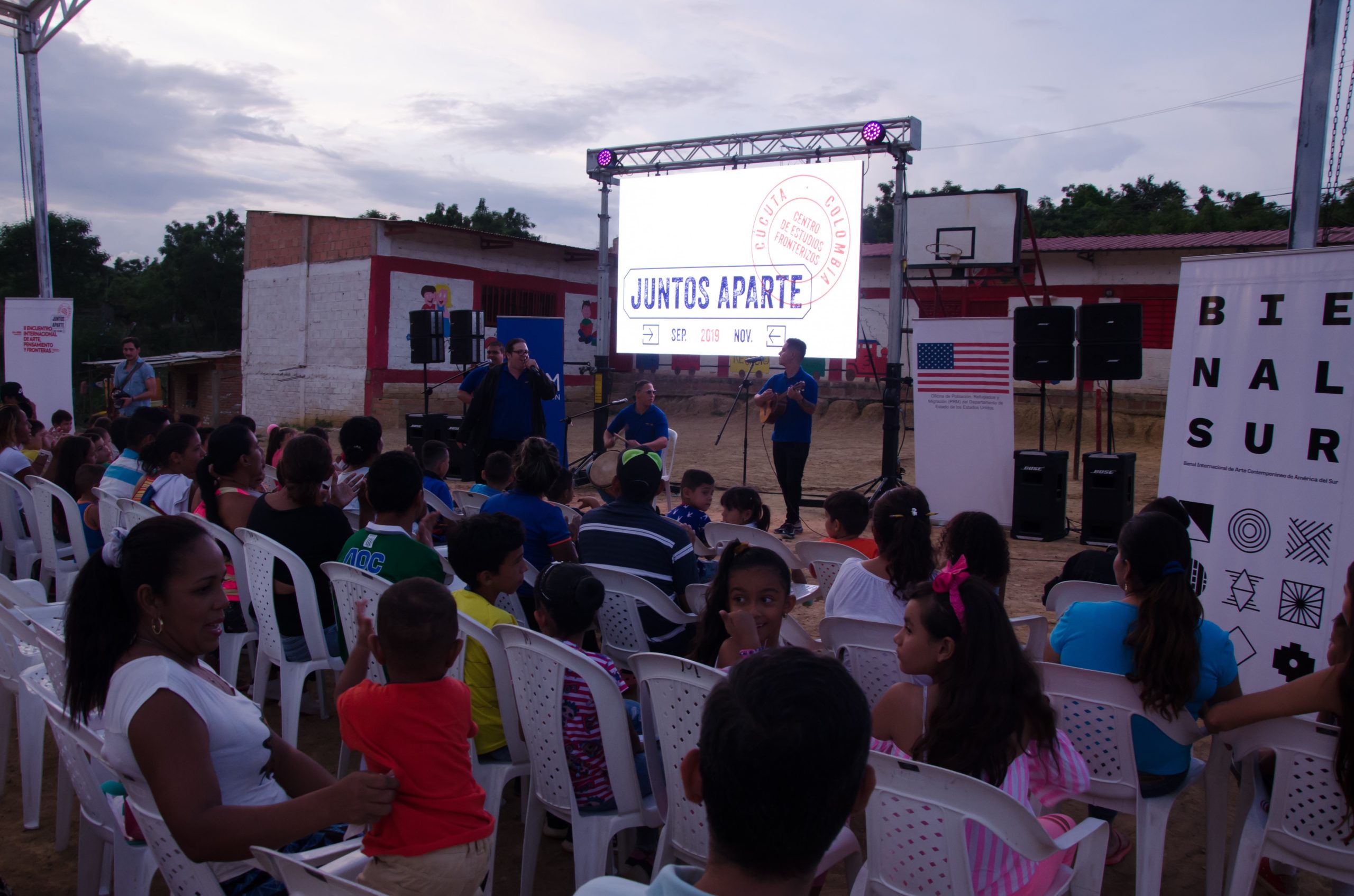
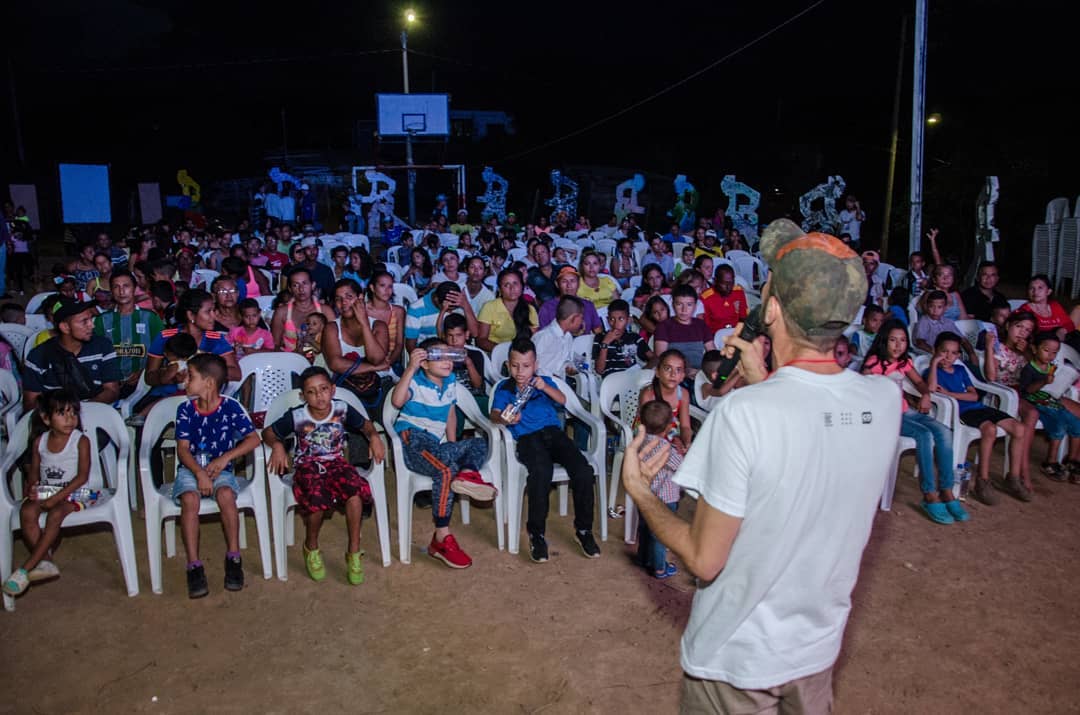
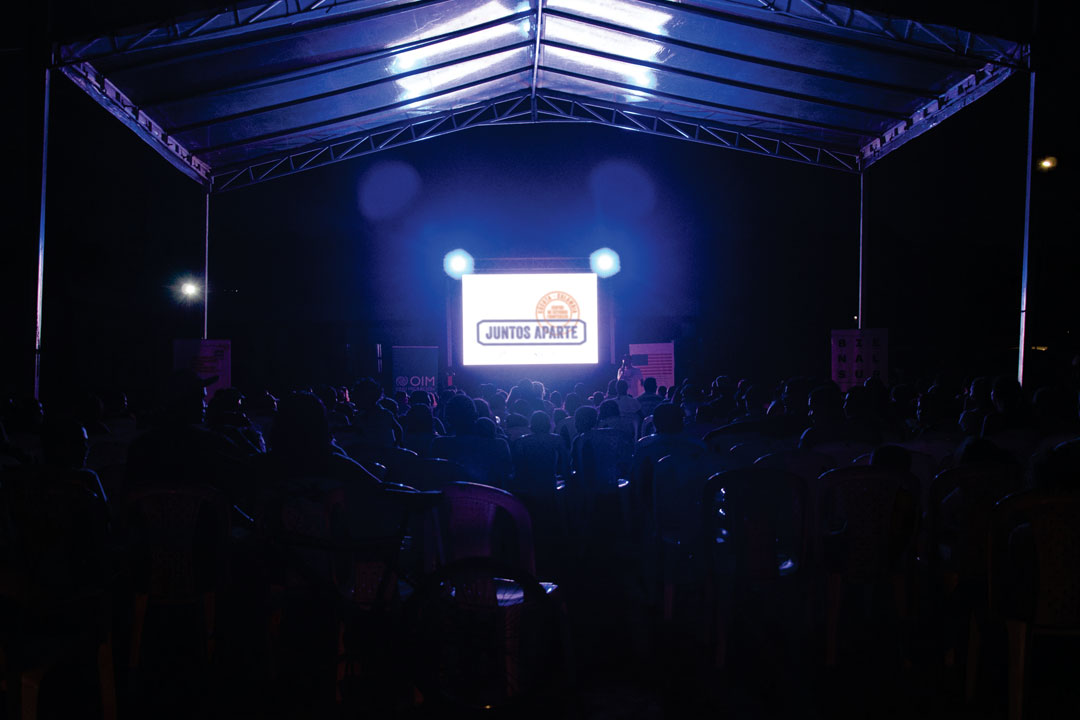
In addition to the auditorium sessions in downtown Cúcuta, the Audiovisual Cycle JUNTOS APARTE 2019 visited the La Parada Migrant Assistance Center – near the border crossing – and the La Fortaleza neighborhood, bringing a special film program to the community, within scenarios of coexistence and integration.
Thanks to IOM and PRM.




Vulnerable communities including returnees, refugees, migrants, LGBTIQ people, victims of the armed conflict, rural people, HIV carriers and disabled citizens enjoyed the concerted tours of the Journeys JUNTOS APARTE 2019, accompanied by experiential exercises for collective transformation.
Thanks to the PAR Program of USAID and ACDIVOCA, IOM with the support of PRM, UNHCR and Travesías
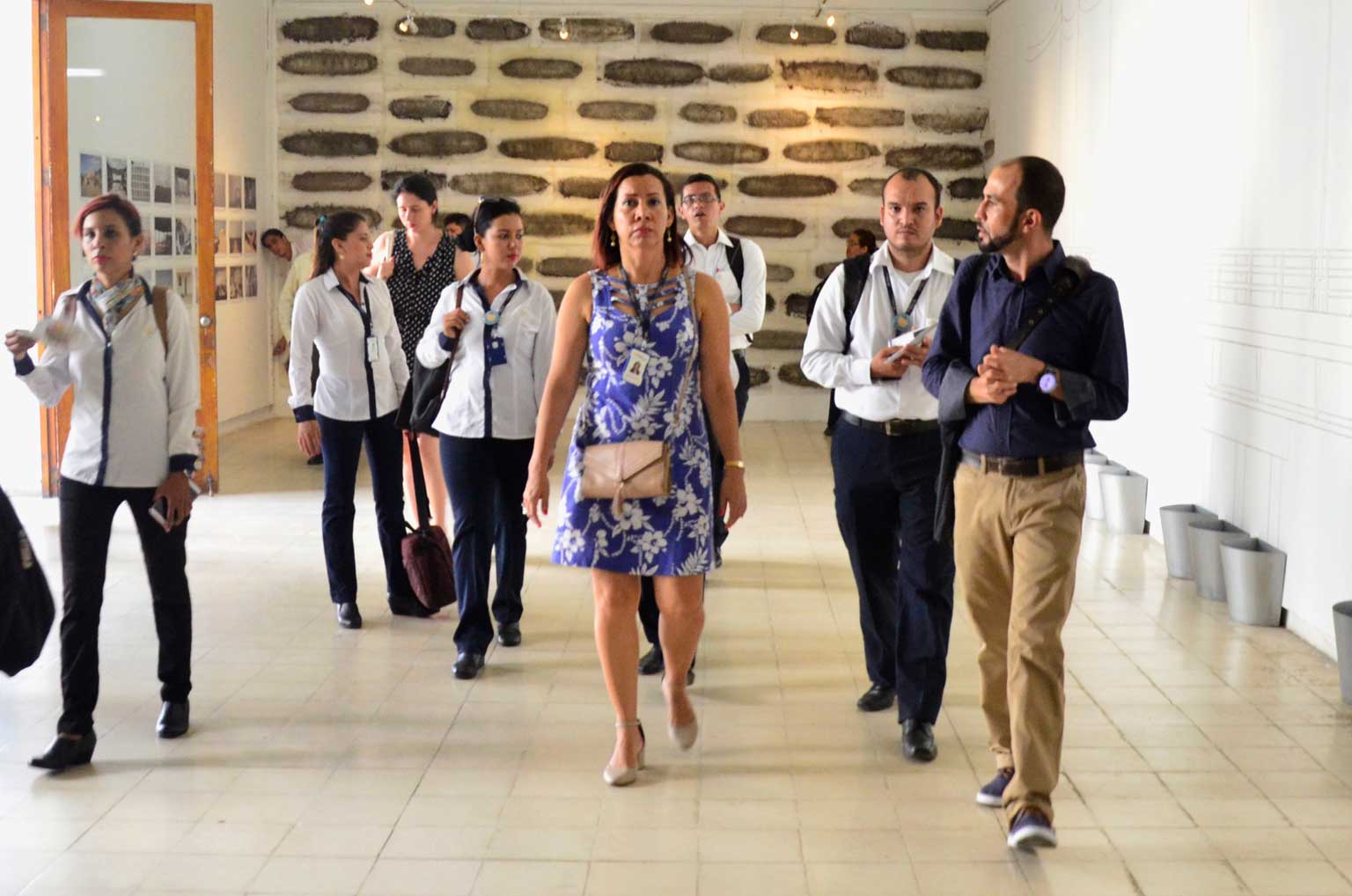
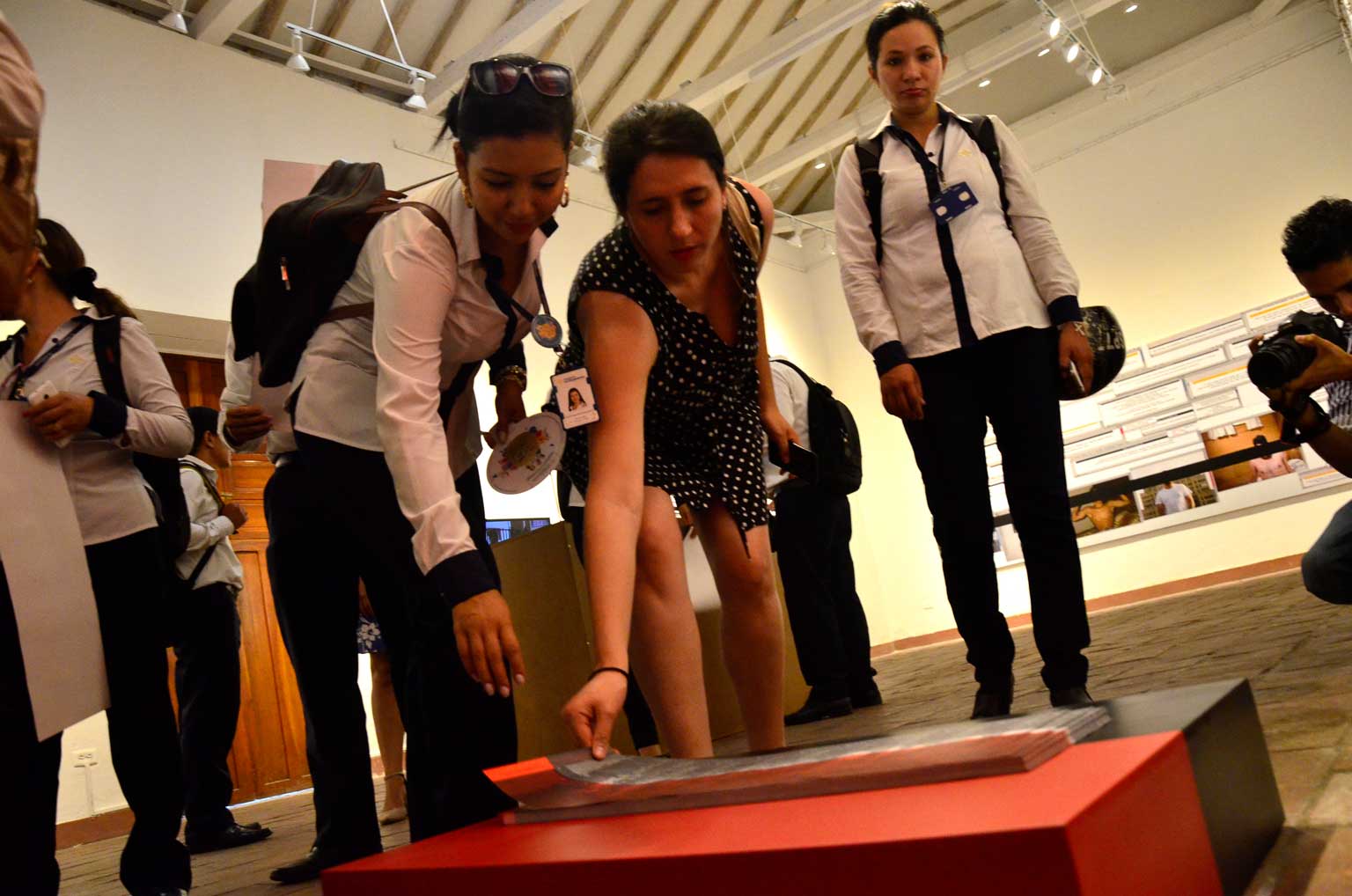
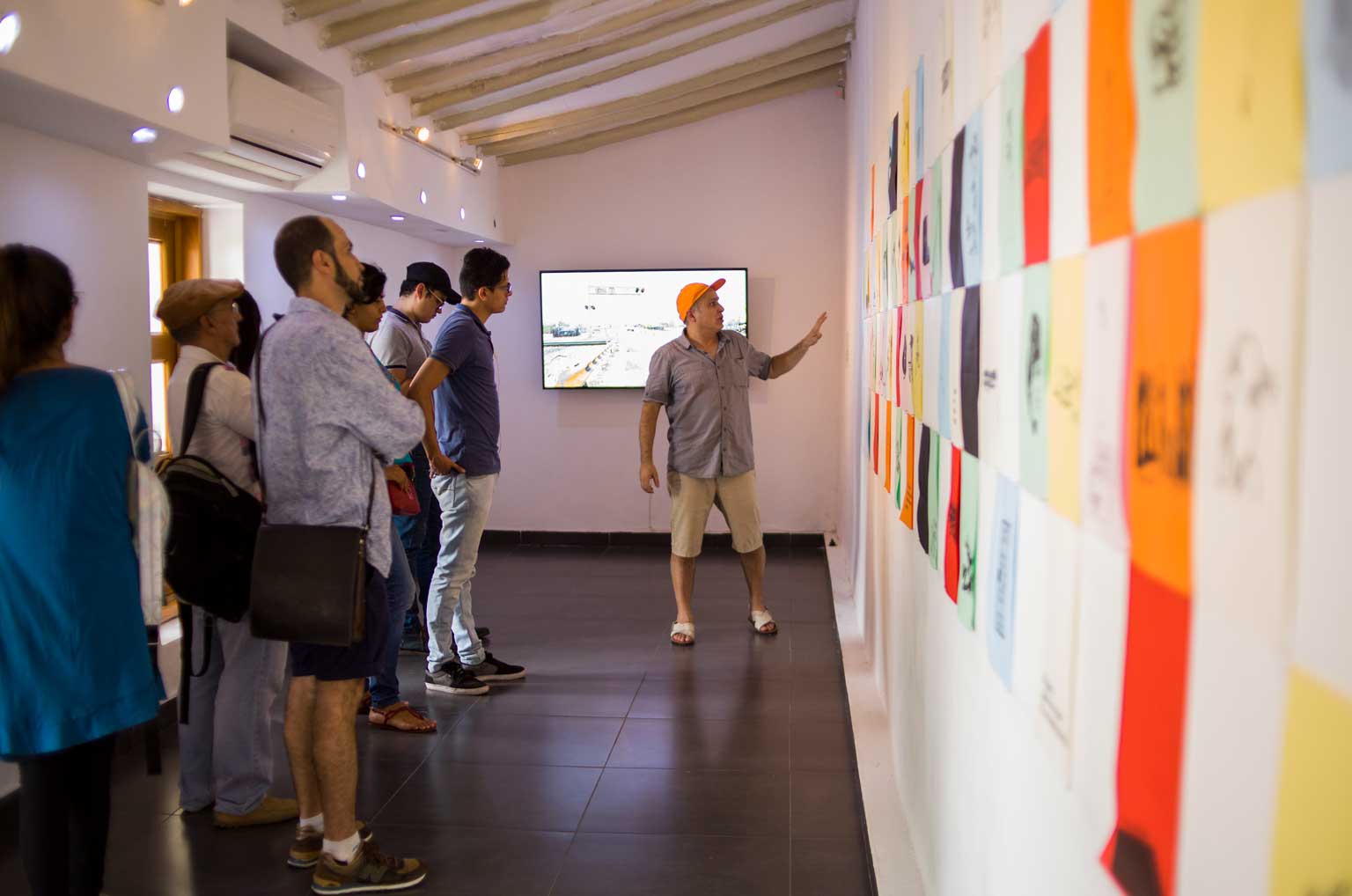
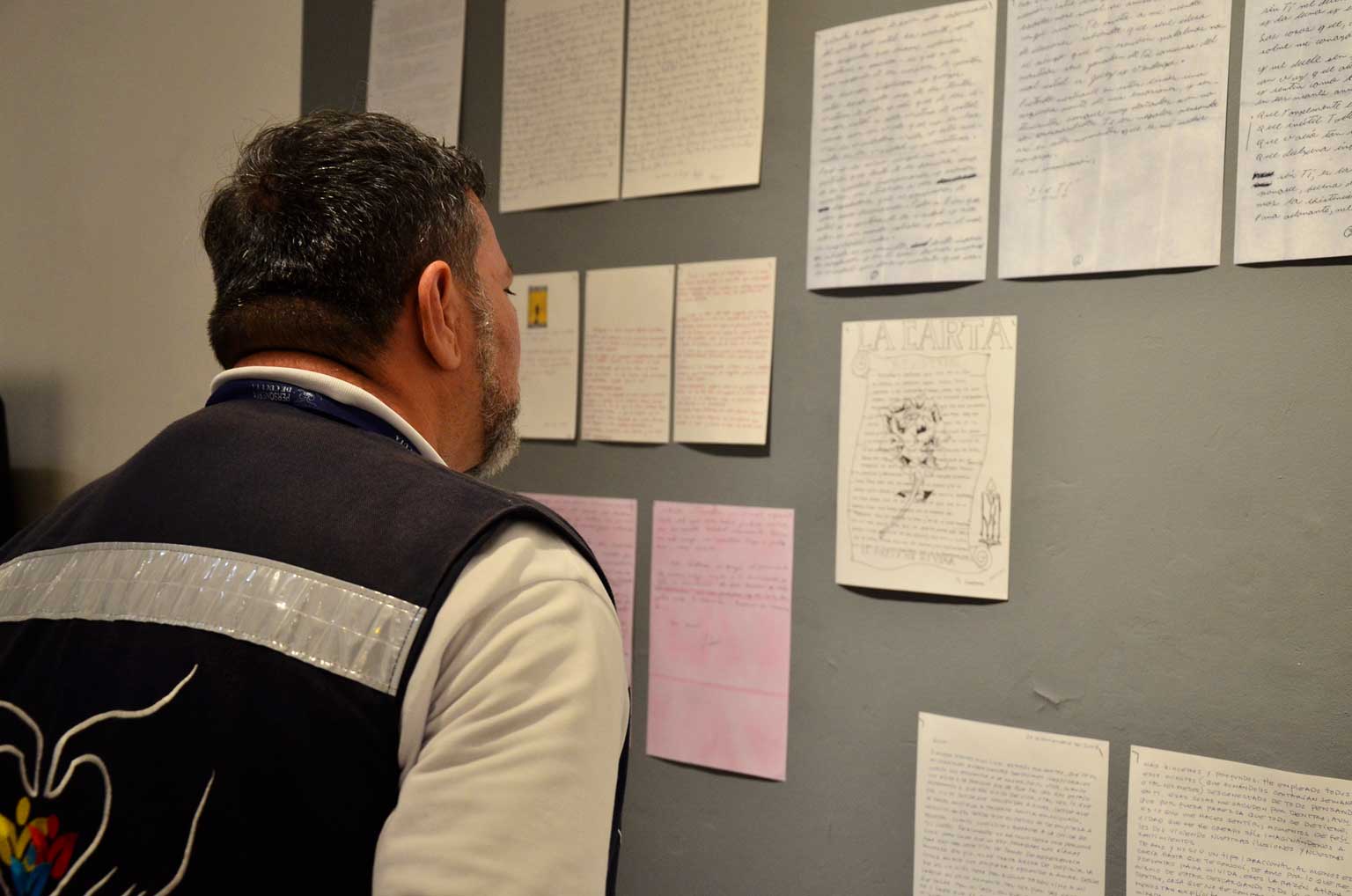
The curatorial team of JUNTOS APARTE accompanies tour with allies, sponsors and members of the local, national and international network of collaborators of the project, betting on the proximity in the experience and in the human bond in order to strengthen the shared value.
We were accompanied in 2019 by the Venezuelan Border Management of the Presidency of the Republic, the PAR Program of USAID and ACDIVOCA, the Chamber of Commerce of Cúcuta and Espacio KB, among others.

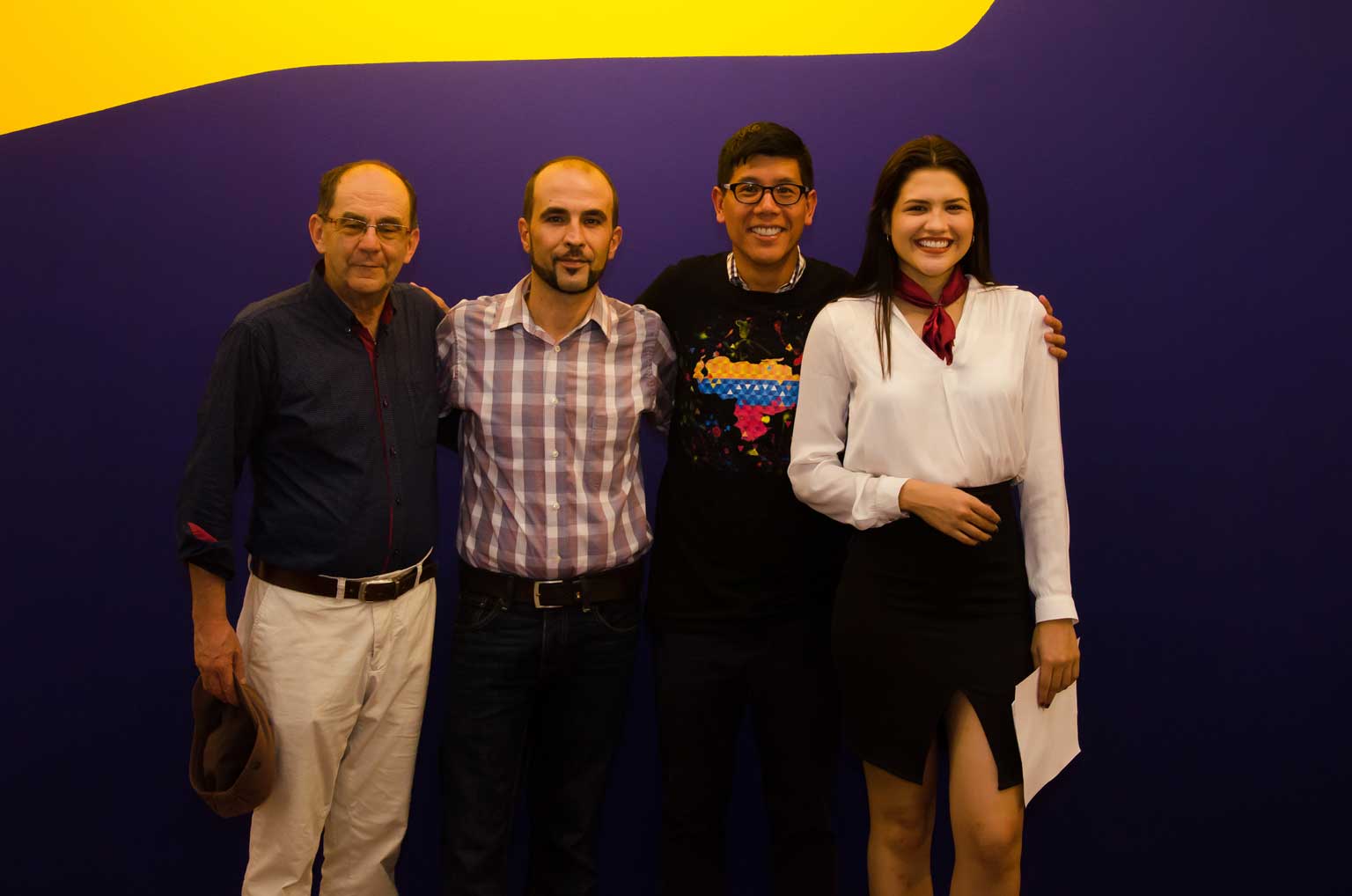


We met Jimena Niño in 2019 during her visit to Cúcuta as Deputy Director of the Alliances for Reconciliation Programme. Today, as director of ACDI/VOCA Colombia and after having committed to JUNTOS APARTE 2019, she shares with us her vision of the processes of humanitarian work and social intervention through the arts and culture on the border.
